ADDRESSING MATERNAL MORTALITY
SOLUTIONS FOR MORE EQUITABLE CARE

2023
Spring

YOUR CHILD’S HEALTH IS A BIG DEAL. Arkansas Children’s is the state’s only health system built just for kids. By working within the communities we serve, it’s our mission to make children better today and healthier tomorrow. We are Champions for Children where they live, learn and play. archildrens.org | 501-430-3142 Our Promise: Unprecedented Child Health. Defined and Delivered.
Plus, enjoy earning on your business checking account!

1 ARKANSAS HOSPITALS | SPRING 2023

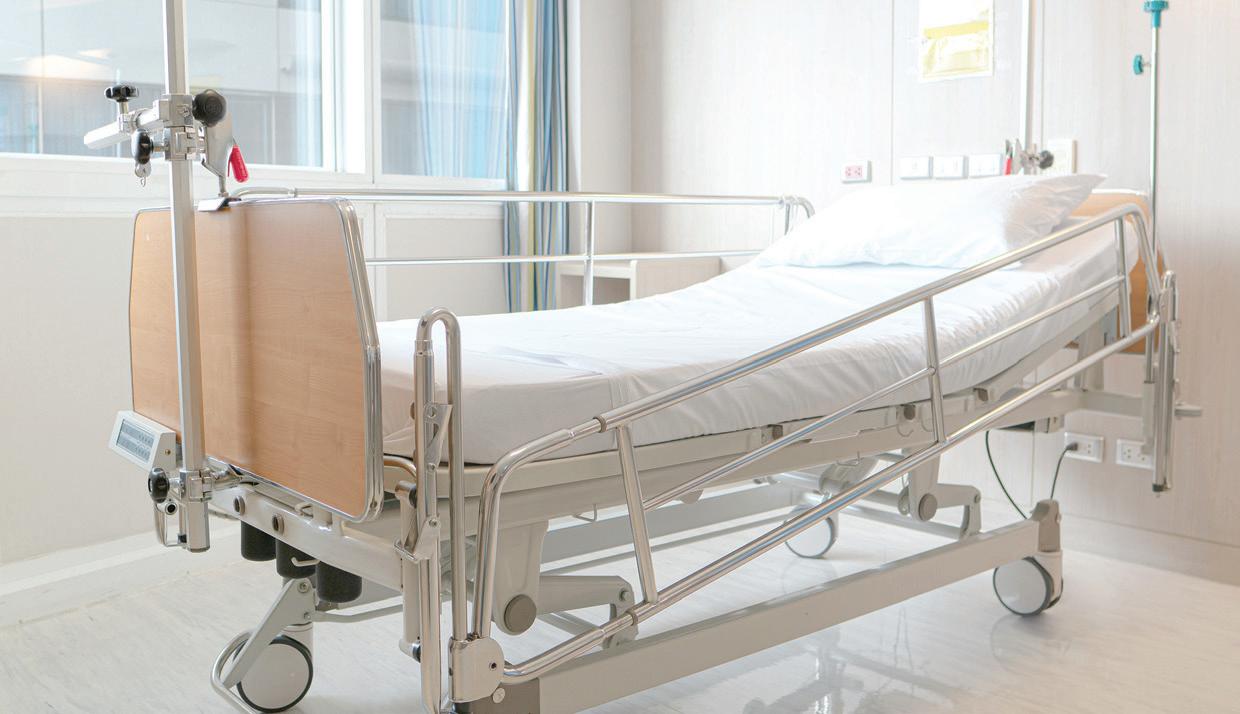

Rest assured with medical professional liability insurance coverage from LAMMICO. 800.452.2120 lammico.com/AH
No matter how many beds you oversee, we make sure you sleep well in your own.
ARKANSAS HOSPITALS
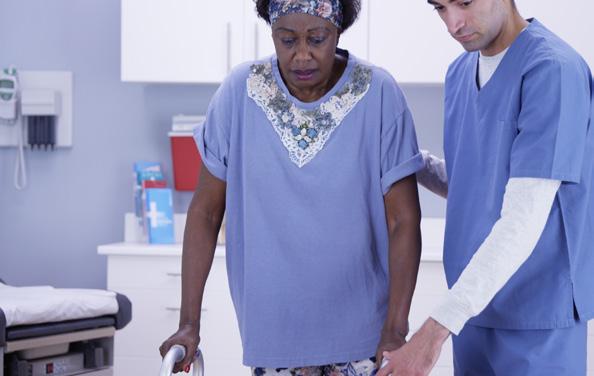
Arkansas Hospitals is published by The Arkansas Hospital Association 419 Natural Resources Drive | Little Rock, AR 72205
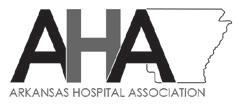
To advertise, please contact Brooke Wallace magazine@arkhospitals.org
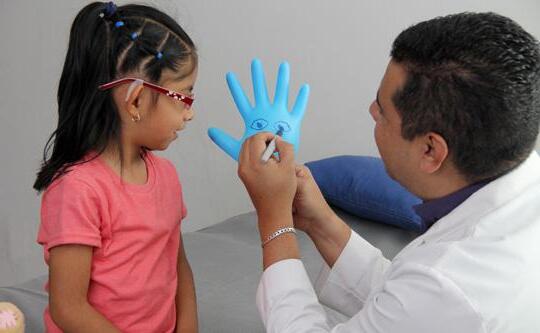
Ashley Warren, Editor in Chief
Nancy Robertson, Senior Editor & Contributing Writer
Katie Hassell, Graphic Designer
Roland R. Gladden, Advertising Traffic Manager
BOARD OF DIRECTORS
Ron Peterson, Mountain Home / Chairman
Larry Shackelford, Fayetteville / Chairman-Elect
Peggy Abbott, Camden / Treasurer
Chris Barber, Jonesboro / Past-Chairman
Ryan Gehrig, Fort Smith / Director, At-Large
Greg Crain, Little Rock
Barry Davis, Paragould
David Deaton, Clinton
Phil Gilmore, Crossett
James Magee, Piggott
Guy Patteson, Jonesboro
Gary Paxson, Batesville
Eric Pianalto, Rogers
Robert Rupp, Mena
Judy Shaffer, Mountain Home
Brian Thomas, Pine Bluff
Debra Wright, Nashville
EXECUTIVE TEAM
Robert “Bo” Ryall / President and CEO
Jodiane Tritt / Executive Vice President
Tina Creel / President of AHA Services, Inc.
Pam Brown / Vice President of Quality and Patient Safety
Lyndsey Dumas / Vice President of Education
Debbie Love / CFO
Melanie Thomasson / Vice President of Financial Policy and Data Analytics
DISTRIBUTION: Arkansas
3 ARKANSAS HOSPITALS | SPRING 2023 EQUITY
HEALTH CARE FEATURES 12 The EQUITY Tipping Point 18 Maternal Mortality and DE&I 32 The Capitol Report 34 DE&I: How to Best Serve Patients 44 Maternal 360 HOMEs IN EVERY ISSUE 5 President’s Message 7 Editor’s Letter 8 Hospital Newsmakers 10 Event Calendar 26 Leader Profile: Juli McWhorter 36 AHA Services Presents 40 Coach’s Playbook 48 Where We Stand: What is Health Equity? SPRING 2023
IN
Hospitals
quarterly
hospital executives, managers
trustees
United States;
physicians,
friends
Articles
Arkansas Hospitals
vary. Products and services
Hospital Association.
is distributed
to
and
throughout the
to
state legislators, the congressional delegation, and other
of the hospitals of Arkansas. Arkansas Hospitals is produced quarterly by Central Arkansas Media. Periodicals postage paid at Little Rock, AR and additional mailing offices. The contents of Arkansas Hospitals are copyrighted, and material contained herein may not be copied or reproduced in any manner without the written permission of the Arkansas Hospital Association.
in
should not be considered specific advice, as individual circumstances
advertised in the magazine are not necessarily endorsed by the Arkansas
To advertise, email magazine@arkhospitals.org.

4 SPRING 2023 | ARKANSAS HOSPITALS
Your Voice Counts at the Capitol
March 15 marks the last of three State Advocacy Days hosted by AHA. These events, designed to bring hospital stakeholders and their legislators face-to-face at the Capitol, allow direct and meaningful conversations about hospitals’ current challenges. CEOs, administrators, and marketing directors have the opportunity to detail health care’s financial hardships, staffing shortages, rural hospital concerns, and legislation needed to address the obstacles presented by insurance companies through the prior authorization process.
At our first two 2023 State Advocacy Days, January 25 and February 21, we had excellent turnout from all regions of the state. Conversations with legislators yielded important feedback. Twenty hospital and AHA leaders came to Little Rock to advocate for hospital needs on each of those days. At Advocacy Day luncheons, Senator Missy Irvin and Representative Lee Johnson, chairpersons of the Senate and House Public Health, Welfare, and Labor Committees, respectively, gave updates on bills that have been filed and a look ahead to hospital-related issues coming up during the Session.
Discussions with legislators tend to focus on hospitals’ extreme financial
difficulties following COVID and the increased costs related to supply chain and staffing shortages, as well as the rising cost of staffing, supplies, and medication due to inflation. Too many Arkansas hospitals face the ominous decision of having to reduce vital services or close their doors.
One successful effort thus far is the Arkansas legislature’s passage of the Rural Emergency Hospital Act, which grants the Arkansas Department of Health authority to license hospitals as “rural emergency hospitals.” This new designation, created by CMS at the federal level, allows qualifying rural hospitals to receive an increase of 5% in Medicare reimbursement rates for outpatient services and procedures. The new legislation is meant to ease rural hospitals’ financial challenges
enough to keep them from having to close. Several rural hospitals are now making financial decisions, based upon their patient data, on whether to accept the new designation or retain their current hospital designation.
We understand Governor Sarah Huckabee Sanders’s priority on education and raising the rate of teacher pay in our state. However, Medicaid funding remains a priority for the AHA on behalf of our hospitals. We seek ways to maximize Medicaid dollars to help hospitals attain updated per diem amounts, which have been static for many years.
It’s energizing to see the progress we can make when hospital leaders speak with their legislators at the Capitol. We’re finding that legislators really grasp the urgent nature of hospitals’ plight and that they are seeking ways to provide meaningful legislative help.
Our advocacy priorities are, at their root, about taking care of all Arkansans. That is why we are focusing this issue of Arkansas Hospitals on the crucial issues of diversity, equity, inclusion, and maternal mortality, and it’s why discussions occurring at State Advocacy Days are so important to every Arkansan.
Bo Ryall President and CEO Arkansas Hospital Association
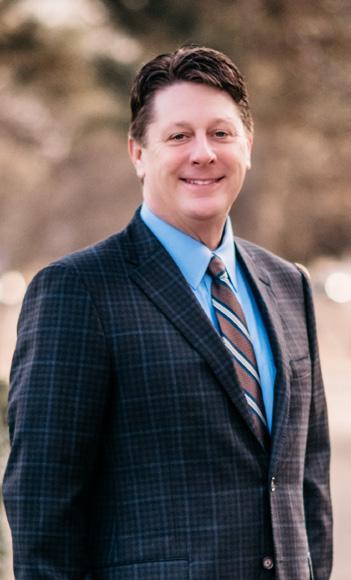
5 ARKANSAS HOSPITALS | SPRING 2023
PRESIDENT’S MESSAGE
SUPPORTING TODAY'S WORKFORCE, Developing Solutions for the Future
The Senate Health, Education, Labor & Pensions Committee last month held a hearing aptly titled “Examining Health Care Workforce Shortages: Where Do We Go from Here?”
Clearly, all of our efforts to inform policymakers and the public about the urgent need to address the workforce challenges have resonated on Capitol Hill, as the tone and focus of this hearing demonstrated. And we welcomed the opportunity to not only work with the committee to inform the hearing, making sure the right questions were asked and most important issues were examined, but also to offer our views on how the government should respond.
As we said in our written statement, “long-building structural changes within the health care workforce, combined with the profound toll of the COVID-19 pandemic, have left hospitals and health systems facing a national staffing emergency.”
Our statement shared more than a dozen policy recommendations to help expand, revitalize and diversify the health care workforce. These include:
• Addressing physician shortages, including shortages of behavioral health providers, by increasing the number of residency slots eligible for Medicare funding.
• Addressing nursing shortages by reauthorizing nursing workforce development programs to support recruitment, retention, and advanced education for nurses and other allied health professionals and investing in nursing schools, nurse faculty salaries, and hospital training time.
• Enhancing workplace safety for all team members, including by enacting federal protections for health care workers against violence and intimidation, and providing hospital grant funding for violence prevention training programs, coordination with state and local law enforcement, and physical plant improvements.
• Adopting policies to substantially expand loan repayment and other incentivebased programs to retain existing talent and attract new talent.
• Reducing administrative burdens, especially those imposed by commercial health insurance companies, which take clinicians away from the bedside and contribute to burnout, such as excessive and unnecessary use of prior authorization.
We need action now. An aging health care workforce, combined with a surge in retirements and the stress associated with responding to the pandemic over a multi-year period, has depleted our caregivers. There are simply not enough medical, nursing and allied health students coming up through the training ranks to take their places. This was true even prior to the pandemic, but COVID-19 has certainly exacerbated the situation.
Adding to the challenges: workforce costs, which account for more than half of hospitals’ expenses, have skyrocketed the last few years. Contract labor, in particular, as a share of total labor expenses rose 178.6% from 2019 to 2022 as health care staffing agencies profited from the pandemic by drastically increasing the hourly rates they charged to hospitals. AHA has urged the Federal Trade Commission and Administration
Rick Pollack, President and CEO, American Hospital Association
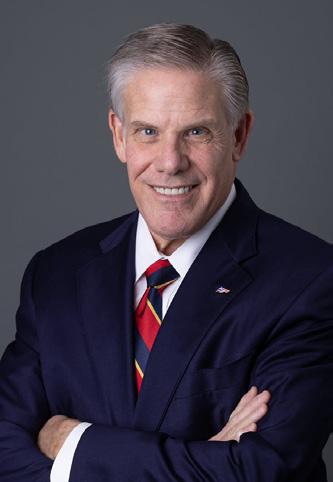
6 SPRING 2023 | ARKANSAS HOSPITALS
PERSPECTIVE
to investigate these exorbitant price increases, which ballooned the bottom lines of staffing agencies and were not fully passed on to workers, for anticompetitive behavior.
At the same time, hospitals and health systems are responding with new approaches and renewed determination to “care for the caregivers” and support them in all facets of their work. In addition, we see hospitals and health systems across the country working to expand training options, recruit internationally, launch nurse education and upskilling programs, reimagine care delivery models, invest in advancing leadership and technology skills development, partner with others for long-term solutions and analytics, and provide nontraditional support for health care workers, such as subsidized housing opportunities.
Meanwhile, AHA continues to provide support and guidance by sharing resources, which are available on our workforce webpage, that address well-being, mental health and safety in the workplace; tools to strengthen the workforce; and ideas for team building, including recruitment and retention strategies. Significant efforts to modernize care models are needed and in process. These models are intended to leverage new technologies, predictive analytics, advanced care coordination and new health worker categories while addressing licensure requirements.
A strong and healthy workforce is the backbone of American health care. We hope that last month’s hearing will generate fresh momentum in Congress for action, and we are encouraged by bipartisan support from Senate HELP leaders Bernie Sanders, I-Vt., and Bill Cassidy, R-La., both of whom have expressed interest in introducing legislation to address the health care workforce shortage.
The AHA will continue to work with Congress and all stakeholders to support and expand the health care workforce so that hospitals and health systems can provide the level of care that our nation needs today as well as in the future.
Hope and Solutions
The seasons are changing, the legislature is in session, and there’s an ever-present sense, these days, that everything is in flux. Amid all the changes that come our way each day, it feels more crucial than ever to keep our focus on finding meaningful ways to support hospitals and hospital workers during this critical time.
That’s why I’m “yielding the floor,” as they say, to American Hospital Association CEO Rick Pollack. His recent op-ed, which is reprinted here with permission, drives home the message that the AHA staff and our members are taking to every legislator, community leader, and stakeholder.

Hospitals are tasked with providing around-the-clock, high-quality, efficient, and compassionate care to all Arkansans; to be able to fulfill that mission consistently and effectively, hospitals need support and resources as they continue to expand and develop a committed and resilient workforce that is well-trained, knowledgeable, professional, and that also feels safe and secure in their workplaces.
We know that every day, this health care workforce compassionately cares for the patients of Arkansas. In this issue of Arkansas Hospitals , we focus on hospitals' attention to diversity, equity, and inclusion, and on Arkansas's fight to reduce the numbers of maternal and infant deaths in our state. This issue is filled with tools your hospital can use to improve DE&I, and you will find an invitation to participate in a national pilot underwritten by The Commonwealth Fund. We hope you find both hope and solutions in the pages ahead.
Ashley Warren Editor in Chief
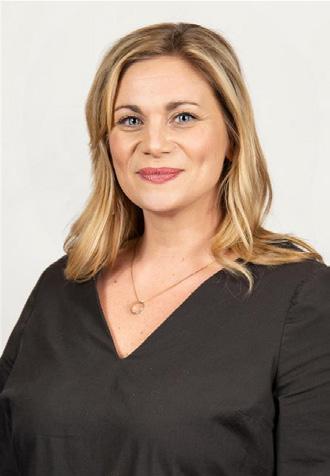
7 ARKANSAS HOSPITALS | SPRING 2023
EDITOR’S LETTER
Scan this QR Code to go to our workforce webpage.
HOSPITAL NEWSMAKERS
George Velez, DHA, MBA-HA, FACHE, has been named Medical Center Director for Veterans Health Care System of the Ozarks . He is a Collaborating Scientist at Harvard University participating in front-line research activities, and most recently served as Deputy Medical Center Director for the VA Caribbean Healthcare System.
The Chartis Center for Rural Health has named Bradley County Medical Center in Warren, Howard Memorial Hospital in Nashville, Mercy Hospital Paris , and Stone County Medical Center in Mountain View as designees of its 2023 Top 100 Critical Access Hospitals.
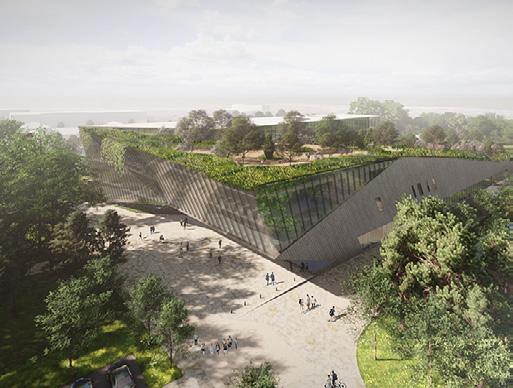
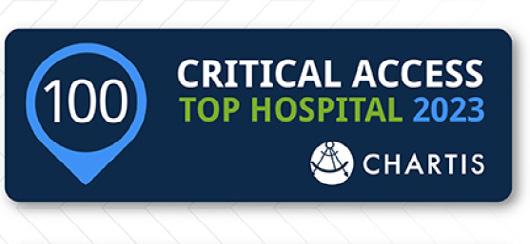
Darren Caldwell is the new CEO at Mercy Hospital Berryville . He has previously served as CEO or in other administrative capacities at Delta Memorial Hospital, DeWitt Hospital and Nursing Home, St. Bernards Healthcare, and Unity Health-Harris Hospital .
The Chartis Center for Rural Health has named Baptist Health-Stuttgart, Baxter Health (Mountain Home), John Ed Chambers Memorial Hospital (Danville), and White River Medical Center (Batesville) as designees of its Top 100 Rural & Community Hospitals for 2023.
Sharmila Makhija, MD, MBA , has been named the Founding Dean and CEO of the Alice L. Walton School of Medicine in Bentonville, effective this May. Dr. Makhija will work with health systems and institutional partners to enhance medical education and prepare students for their future roles in health care. Founded in 2021 and seeking accreditation, the Alice L. Walton School of Medicine will offer a four-year medical degree program, and it will welcome its first class of students in 2025.
The Arkansas Minority Health Commission recently awarded $27,500 in scholarships to 29 minority students pursuing careers in health care and public health for the Spring 2023 school semester. Scholarship awards ranged from $500 to $1,000 each and went to students attending Pulaski Technical College, Southeast Arkansas College, UAMS, University of Arkansas Little Rock, University of Arkansas Monticello, Arkansas State University, the University of Arkansas, University of Arkansas Pine Bluff, Baptist Health College Little Rock, the University of Central Arkansas, Henderson State University, and the Jefferson Regional Medical Center School of Nursing. The goal of offering these scholarships is to help close the minority workforce diversity gap in health care.
Zane Jeffers, CPS, CHFP , has been named President and CEO of Levi Hospital in Hot Springs, where he formerly served as Comptroller, then as CFO. He will succeed longtime Levi CEO Pat McCabe, who is retiring and will serve the hospital through March 2023.
Siloam Springs Regional Hospital, Northwest Medical Center Bentonville , and Willow Creek
Women’s Hospital (Johnson) are the first hospitals in Arkansas to earn the Baby-Friendly designation from Baby-Friendly USA. Baby-Friendly USA is part of the World Health Organization (WHO) and United Nations Children’s Fund (UNICEF) international Baby-Friendly Hospital Initiative. The initiative encourages the broadscale implementation of successful breastfeeding and assists hospitals in giving mothers the information, confidence, and skills necessary to successfully initiate and continue breastfeeding their babies. In cases where breastfeeding is not possible or chosen, Baby-Friendly hospitals provide information to mothers on the safe preparation and feeding of breast milk substitutes.
8 SPRING 2023 | ARKANSAS HOSPITALS
Alice L. Walton School of Medicine (architectural rendering)
Tommy Hobbs, MBA , is the new CEO at Johnson Regional Medical Center in Clarksville. He succeeds Michael Dorsey , who is retiring.
Unity Health-Jacksonville is set to open in March. The hospital is a completely renovated facility on the site of the former North Metro Medical Center. The $36 million renovation of the facility’s first floor includes a state-ofthe-art emergency room, imaging services, and a psychiatric unit. Within the next few years, Unity Health plans on renovating the hospital’s second floor to include operating suites and patient care rooms. A ribboncutting ceremony and open house were held in February.
Excellence in Stroke Care
The Arkansas Department of Health (ADH) recently recognized 14 hospitals for excellence in stroke patient care. These awards are based on stroke care performance as documented in the Arkansas Stroke Registry (ASR) for July 2021 and June 2022 patient discharges. They are awarded to hospitals for providing defect-free stroke care. Defect-free care is an aggregated metric based on the 10 American Heart Association/American Stroke Association (AHA/ASA) Coverdell performance measures in the Get With The Guidelines ®-Stroke Patient Management Tool. These measures are benchmarked according to the standards of evidence-based stroke care guidelines to ensure stroke patients receive appropriate and timely care.
The primary goal of the ASR is to perform stroke surveillance, monitor stroke care performance, and provide stroke education and quality improvement assistance to improve stroke patient care and outcomes.
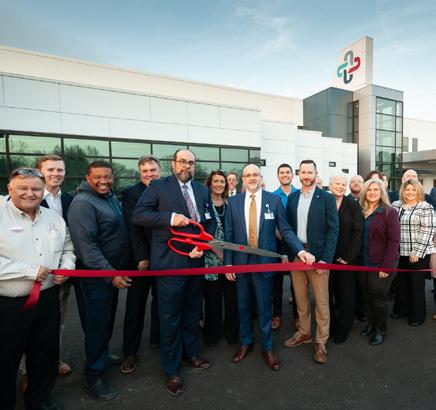
There are three award categories* based on the level of adherence to the defect-free care measure:
• Diamond: 95%+
• Ruby: 90%-94.99%
• Pearl: 85%-89.99%
Congratulations to the following facilities for earning recognition for defect-free stroke care:
• Comprehensive Stroke Centers
° Diamond
- University of Arkansas for Medical Sciences
- Washington Regional Medical Center
° Pearl
- Baptist Health Medical Center-Little Rock
• Primary Stroke Centers
° Pearl
- Mercy Hospital Fort Smith
- Northwest Medical Center - Springdale
- Wadley Regional Medical Center
• Arkansas Stroke-Ready Hospitals/Acute Stroke-Ready Hospitals
CHI St. Vincent Heart Institute will soon add clinical cardiology services to the new Sevier County Medical Center in De Queen. Beginning in early April, two of the Heart Institute’s heart specialists will see heart patients from the region, providing access to cardiology care two days a month. The service is a part of the Heart Institute’s large and diverse network of physicians offering community clinical services throughout Central and Southwest Arkansas.
° Diamond
- Drew Memorial Hospital
- Mercy Hospital Booneville
- St. Mary’s Regional Medical Center
° Ruby
- St. Bernards Five Rivers Medical Center
° Pearl
- Mercy ED Springdale
- Medical Center of South Arkansas
- Johnson Regional Medical Center
- Baptist Health Medical Center-Arkadelphia
*To be eligible for an award, a hospital must be stroke designated either through ADH or other accrediting body such as The Joint Commission. A hospital may also qualify for a Pearl award if performance is in the 75th percentile among its designation group.
9 ARKANSAS HOSPITALS | SPRING 2023
Unity Health Jacksonville ribbon cutting
2023 Spring Calendar
APRIL
April 11-12
2023 Emergency Preparedness Forum
Wyndham Riverfront Little Rock
North Little Rock
April 11-12
2023 Emergency Preparedness Forum
Wyndham Riverfront Little Rock
• Features Workplace Violence Panel
• ACHE Face-to-Face Hours Offered

April 13-14
Arkansas Healthcare Human Resources Association (AHHRA)
2023 Spring Conference
DoubleTree by Hilton Hot Springs
April 16-22
National Healthcare Volunteer Week
April 18
340B Quarterly Meeting
Virtual event
April 20
AHA Quality Forum
Partnerships & Collaborations: Impacting Outcomes
Virtual event
April 20
Governing Board and Medical Staff Conditions of Participation Webinar
April 20-21
Arkansas Association for Healthcare Engineering (AAHE)
2023 Annual Meeting & Trade Show
Oaklawn Racing Casino Resort Hot Springs
April 20
Focus Your Board on the Right Things Webinar

April 21
Arkansas Association for Healthcare Quality (AAHQ)
Educational Conference
Virtual event
April 23-25
American Hospital Association
2023 Annual Membership Meeting
Marriott Marquis
Washington, D.C.
April 27-28
Society for Arkansas Healthcare Purchasing and Materials Management (SAHPMM)
2023 Annual Meeting & Trade Show
Holiday Inn Little Rock Airport Conference Center
Little Rock
MAY
May 5
Arkansas Social Workers in Health Care (ASWHC)
2023 Spring Meeting
AHA Classroom
Little Rock
May 7-13
National Hospital Week
May 11
Arkansas Hospital Auxiliary Association (AHAA)
Board Meeting
AHA Board Room
May 11
Common Hospital Deficiencies
Webinar
May 18
AHA Quality Forum

Maternal Mortality
Virtual event
May 19
Arkansas Association for Medical Staff Services (ArkAMSS)
2023 Spring Roundtable
Virtual event
10 SPRING 2023 | ARKANSAS HOSPITALS
May 24-26
AHERT Executive Leadership Conference
Chateau on the Lake Branson, Missouri
May 24
AHA Board Meeting
Chateau on the Lake Branson, Missouri
(Held in conjunction with the AHERT Executive Leadership Conference)
May 31
Emergency Medical Treatment & Labor Act Series – Part 1
Webinar
JUNE
June 1
Arkansas Hospital Association Workers’ Compensation Self-Insured Trust (AHAWCSIT)
Board Meeting
Virtual event
June 7
Emergency Medical Treatment & Labor Act Series – Part 2
Webinar
June 14
Emergency Medical Treatment & Labor Act Series – Part 3
Webinar
June 15
AHA Quality Forum
Health Equity
Virtual event
Please Join Us May 24-26 in Branson, Missouri, for the Arkansas Hospital Education and Research Trust Executive Leadership Conference
Plan now to join us May 24-26 for the AHERT Executive Leadership Conference, to be held at Chateau on the Lake in Branson, Missouri. Registration information for the event will be provided soon.
Family Friendly Activities Include a Night at Andy B’s
You and your entire family can eat, drink, bowl, navigate escape rooms, play arcade games, enjoy virtual reality competitions, and more! Sponsored by Nabholz, this is an evening for all ages!
Learn from Experts, Including:
Rachel Wilson, former NSA counterterrorism operations chief, discussing Cyber Threats in 2023: How They Impact You and Your Business, and How to Be Prepared.
Pamela Barnum, former federal prosecutor and undercover police officer, discussing techniques for building rapport, establishing trust, and detecting deception.


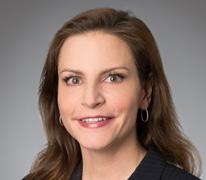
Seth Karnes, Healthcare Training Senior Manager with security industry leader HSS, discussing lateral/horizontal violence in the health care workplace and what steps can be taken to reduce, respond, an mitigate this violence.
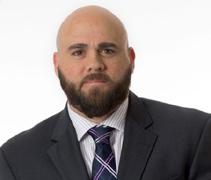
ACHE Workshop, 3 Face-to-Face Credit Hours Laurie Baedke, FACHE, FACMPE, Director of Healthcare Leadership Programs at Creighton University, will present Resilient Leadership: The Role of Well-Being in Individual and Organizational Performance. The prevalence of burnout in health care demands that leaders examine research around resilience and wellbeing and consider habits and practices that can drive individual and organizational performance.
REGISTER SOON ONLINE AT ARKHOSPITALS.ORG !
And Save the Dates, November 1-2, for the 2023 AHA Annual Meeting!
Speakers include:
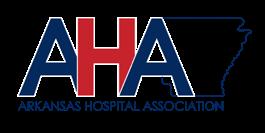
11 ARKANSAS HOSPITALS | SPRING 2023
Rachel Wilson
Seth Karnes
Pamela Barnum
Laurie Baedke
THE EQUITY TIPPING POINT (and Tools to Really Help)
This spring marks three years since COVID forever changed the world, and we all look back on March 2020 through our own set of lenses. Some imagine fewer Zoom meetings or a life without masks. Some accept the health-related changes in our world, and some are still struggling to embrace the new normal. Many, like me, take it one month at a time and try to learn from our collective experiences.
That spring of 2020 was the convergence of my role as a father and my professional life. My wishes for the world in which my young children would grow up joined with undeniable, startling realizations about health care delivery in my community of Chicago. It is a convergence that led to my discovering my life’s purpose – bringing about racial equity in health care.
DIVERSITY, EQUITY, AND INCLUSION – IN ACTION
At the time, I was working in health care quality with the Illinois Health and Hospital Association (IHA), and like so many others serving hospitals, I was quickly thrust into a role with our association’s COVID response team.
While folks in other industries felt their professional lives grinding to a halt (or at least slowing down and changing venues), those in the
health care field were immediately overwhelmed with the challenge of a lifetime, a challenge we’re still facing and which exposed the already existing cracks in our nation’s health care system.
Burnout, staffing, inequitable outcomes, strained resources. We all know how long the list is, and we all know that none of the faults exposed in the system have yet been resolved. COVID still shines a bright light on our system’s fractures.
I see COVID as a mechanism that has forced a diagnostic assessment of American health care at both the national and local levels. While the world was watching, COVID exposed inequities and demographic health outcomes in our nation that could not be ignored.
Those bleak truths conflict with the story I want to be able to tell my children in a couple of decades. That is why, since that spring, I have dedicated myself to the cause of helping our health care heroes and leaders on the front lines mend exposed systemic fractures however I can.
EYES WIDE OPEN(ED)
No more than two months after COVID kick-started my soul searching, my passion for this cause became crystal clear. You’ll no doubt remember your own feelings around
By Adam Kohlrus
the three occurrences that moved my personal focus to the space of health and racial equity.
1. In May 2020, reports told us that African Americans were 70 of the first 100 recorded COVID deaths in Chicagoi.
2. George Floyd was murdered May 25, 2020.
3. Illinois formed a statewide committee on health disparities. The exacerbation of inequitable outcomes in COVID mortality by race and the social unrest dominating the Summer of 2020 are the fractures that fine-tuned my focus, and IHA’s Committee on Health Disparities became my tool to help mend our broken system.
While with IHA, I spearheaded new work with local academic health care leaders Brenda Battle (University of Chicago Medicine) and David Ansell (Rush University Medical Center). Brenda and David have dedicated – and continue to dedicate – their careers to making Chicago’s health outcomes and care delivery more equitable. It was their leadership and vision which led to Illinois’s extraordinary partnership of academic health systems with a state hospital association for the purpose of improving health and racial equity in our state.
Since the Summer of 2020, that partnership of academic medicine
12 SPRING 2023 | ARKANSAS HOSPITALS
with the hospital association has produced an assessment piloted with more than 150 hospitals and federally qualified health centers in Illinois. I continue to lead the process through my new work with Do Tank, a global innovation firm dedicated to helping teams align while turning ideas into energy and action. The assessment, through its formative collaboration between IHA, Rush University Medical Center, the University of Chicago Medicine, Do Tank, and the Commonwealth Fund, is now being shared across the country through a national pilot program.
MAKING PROGRESS IN THE EQUITY SPACE
The Racial Equity in Healthcare Progress Report recognizes that progress and improvement in the equity space requires measurement, accountability, and action. This tool was created out of necessity: Health care organizations need a tool for assessing their performance in addressing racial disparities as they provide health care.
The Progress Report is a long-term accountability tool that documents progress toward achieving health and racial equity. It is meant to promote
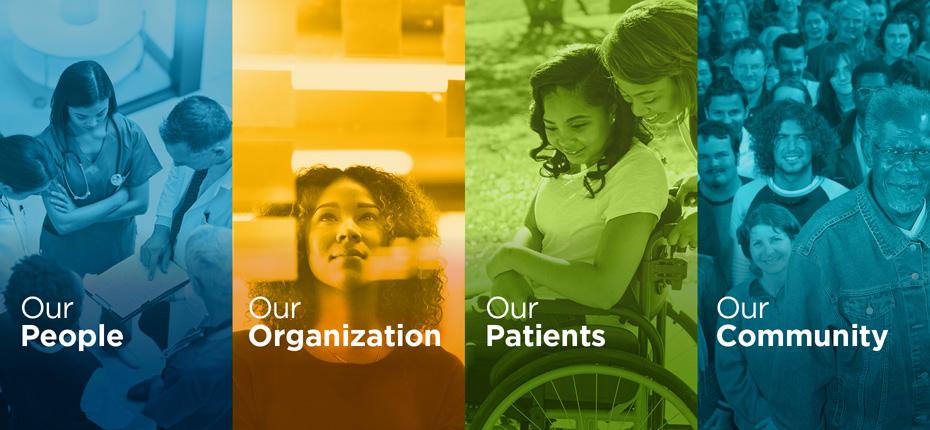
collective improvement, not to drive competition. It begins with a baseline self-assessment and includes pinpointed tools for measuring progress, assessing implementation of key strategies, understanding provider and community assets in racial equity work, and identifying needed areas of improvement.
I am privileged to be part of the team that is now working to scale and disseminate the Progress Report to a national audience, thanks to a grant from the Commonwealth Fund. We believe that by working together, the health care field can dismantle
13 ARKANSAS HOSPITALS | SPRING 2023
systemic racism in a way that no individual organization can. The Progress Report, along with our digital equity hub, can highlight the important steps that organizations are taking as well as show the path for the work ahead.
THE LENS OF HEALTH AND RACIAL EQUITY
The national pilot seeks to document and improve hospitals’ health equity work. To accomplish this, the Progress Report focuses on four areas within your institution: Our People, Our Organization, Our Patients, and Our Community.
The “our people” component asks organizations to look in the mirror and evaluate their own boards, leadership teams, and employees, asking themselves, “Are we practicing what we are preaching, and are we diverse, equitable, and inclusive from the top down?”
The “our organization” component emphasizes the internal strategies, policies, and practices that are important to advancing health equity. This section challenges us to increase our data and analytic focus on health equity metrics like REAL (Race, Ethnicity, Ancestry, and Language), SOGI (Sexual Orientation and Gender Identity), and SDOH (Social Determinants of Health) data.
The “our patients” component looks at those we serve and asks if we have a strong handle on who we are serving and what clinical inequities exist across patient populations within our communities.
The “our community” component asks if we are working effectively with community-based organizations and other stakeholders in our communities, since we know that improving health equity must be done with the community – not to the community.
In the years ahead, we believe that the importance of standardized metrics in the equity space will be crucial. Our Progress Report tool focuses on 10 composite metrics which are aligned with the four pillars of the Progress Report. We are using fewer, but more impactful, metrics across internal and external functions to avoid an overly broad scope or “analysis paralysis.”
MOVING FROM DATA TO ACTION
Coming from a quality improvement background, I believe that pathways to action are just as important as the data we collect.
You may have the best assessment tool or analytic picture of a problem given the data you have, but if you are not equipped to move to action, what good is that data?
That question is the guiding force behind the development of our programmatic arms, each of which is designed to move health care organizations from data to action. Our team has tested and validated an implementation playbook, learning collaboratives, strategic workshops, and a peer-to-peer digital hub as the key components for driving strategic action in the equity space.
14 SPRING 2023 | ARKANSAS HOSPITALS
We believe that by working together, the health care field can dismantle systemic racism in a way that no individual organization can.
The tools and resources within our programming enable organizations to Reflect, Focus, Plan, and Commit to equitable strategic action. Human-centered design ii tools and techniques embedded in our programming enable organizations to analyze data, resources, and strategic priorities with a focus on promoting organizational growth and mobilizing toward action.
Our digital hub enables peer-to-peer collaboration with equity leaders from across the country. We have curated a unique suite of human-centered design visual canvases, podcasts, and equity forums in which peers across the country can engage.
Over the next several months we will highlight customizable visual canvases, which have been born through principles of human-centered design. These visual canvases act as simple tools to guide complex conversations in the equity space, and we hope they will be valuable assets for leaders to deploy at their organizations. We are thrilled to have the support of the Commonwealth Fund in developing these assets, and that support allows us to offer them free of charge to organizations around the world.
JOIN THE PILOT, ACCESS FREE TOOLS AND RESOURCES

If you would like access to the Progress Report tool, data analytics, and peer-to-peer digital hub, simply sign up to engage in the national pilot at rush.edu/about-us/rush-community/rush-bmoinstitute-health-equity/racial-equity-healthcareprogress-report.
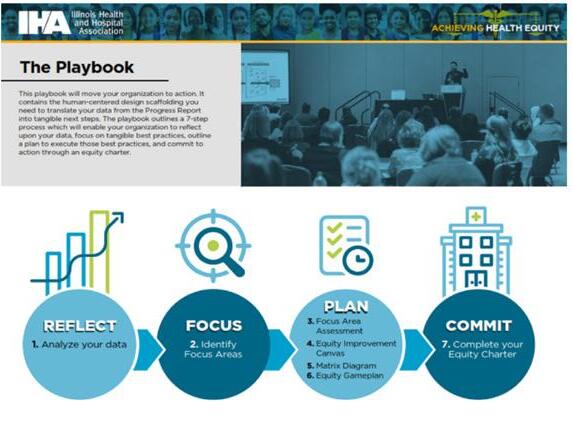
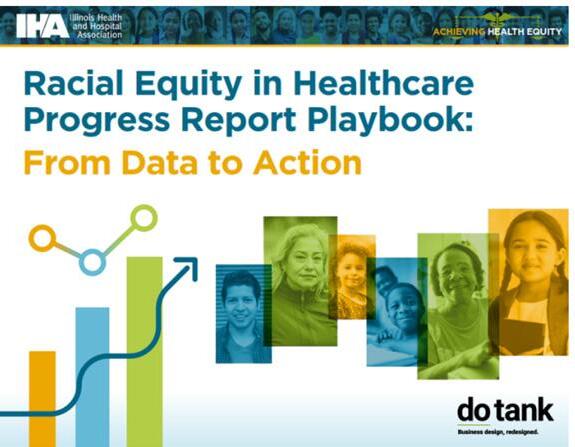
15 ARKANSAS HOSPITALS | SPRING 2023
Scan this QR Code to Join the Pilot.
LOOKING FORWARD
After graduating from college, I left to be a community health volunteer for the Peace Corps in southern Africa. My journey in health care began in the rural clinics of Africa, where I became a member of a family and a community, and, for a quick couple of years, experienced on a daily basis what lack of access to care and access to resources really meant.
There is a world of knowledge that I wish I could pass back to that 22-yearold version of myself. At times it keeps me awake at night, thinking what more I could have done or how I might have been able to be a better agent of change in combating a systemic health crisis as devastating as HIV/AIDS.
While I may dream about how more could have been done, I know I can’t turn back time, but what I can do is dedicate myself fully to the cause of racial equity in health care now. I don't want to look back in a few decades with regret that I didn't do more.
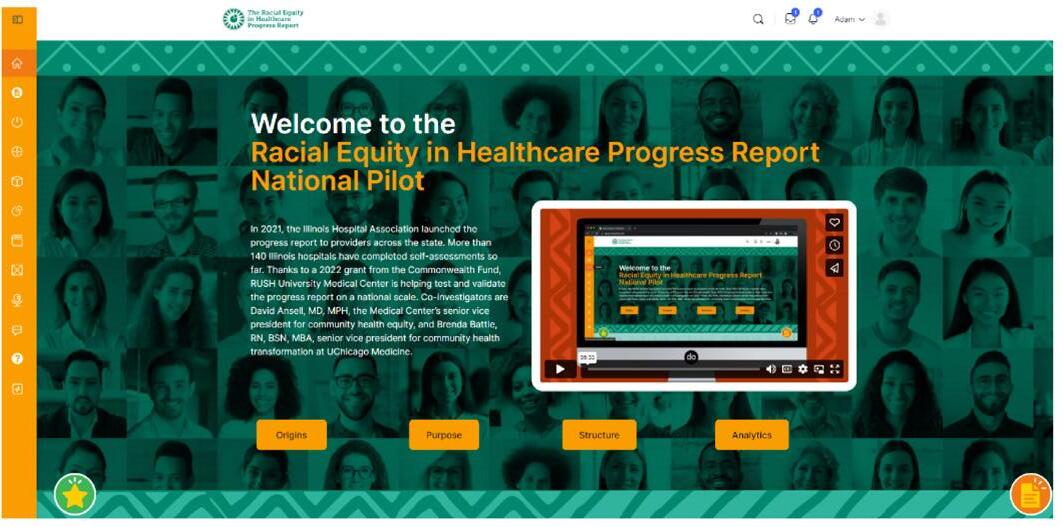
This generation of leaders has the chance to assure equitable outcomes, equitable access, and equitable representation. We have the power to spur systemic change and we have no excuse not to. There is every reason why this moment in our health care history can become a similar tipping point for equity that To Err is Human was for the quality movement in 2000. That is the story I want to tell my kids. I want them to, as Margaret Mead so eloquently said, “Never doubt that a small group of thoughtful, committed citizens can change the world; indeed, it’s the only thing that ever has.”
Endnotes
i https://features.propublica.org/chicago-first-deaths/covid-coronavirus-took-black-lives-first/ ii Human-Centered Design is a problem-solving technique. It focuses clearly on a particular group or audience’s human needs and puts real people at the center of the development process.
Adam Kohlrus , MS, CPHQ, CPPS, is Partner & Business Designer with Do Tank and Do Tank Health, a global innovation firm made up of strategists, innovators, facilitators, designers, and developers that helps health care organizations and teams design actionable solutions for quality, equity, and innovation.
16 SPRING 2023 | ARKANSAS HOSPITALS
• Health care call centers
• Telehealth implementation for practices
• Public health services –testing, vaccine clinic administration
• Surveys, data analysis, and customized reporting
• Virtual conference hosting

17 ARKANSAS HOSPITALS | SPRING 2023 Visit afmc.org/Solutions to find out more.
our experience to work for you:
Put
AFMC – Your proven health care collaborator. © 2023, AFMC, INC. ALL RIGHTS RESERVED. in AFMCTV Check out
Maternal Mortality and DE&I What is Arkansas’s Current Path?
As part of our exploration of Diversity, Equity, and Inclusion in Arkansas health care, Arkansas Hospitals wants to spotlight a particularly challenging area: Maternal Mortality. In February, Dr. William Greenfield, Arkansas Section Chair for the American Congress of Obstetrics and Gynecology and Professor in the Obstetrics & Gynecology Department of the College of Medicine at UAMS, spoke with us about this important topic.
Arkansas Hospitals
Dr. William Greenfield
Please tell us about maternal mortality, its importance in the U.S. and particularly in Arkansas. How can a modern nation still be fighting maternal mortality in this day and age?
Every family deserves to have a healthy outcome with their pregnancy. Unfortunately, this is not always the case as approximately 700 women die each year in the United States as a result of pregnancy or delivery complications. In recent years, it has become apparent that maternal mortality in the U.S. has increased, with the United States having the highest rate among developed countries and Arkansas among the five states with the highest number of maternal deaths per 100,000 live births (CDC).
Maternal death is the death of a woman while pregnant or within 42 days of the end of the pregnancy but excludes accidental or incidental causes. Another term that is used is pregnancy-related death , defined as the death of a woman during pregnancy or within one year of the end of pregnancy from a pregnancy complication, a chain of events initiated by pregnancy, or the aggravation of an unrelated condition by the physiologic effects of pregnancy.
Arkansas has been addressing maternal mortality challenges for decades. What improvements have you seen? Is this a constant cycle of challenges, and are we making progress?
Arkansas’s efforts to combat this trend has been multifaceted. Legislation in 2019 led to the formation of the Arkansas Maternal Mortality Review Committee (MMRC), which has helped ensure the collection and interpretation of accurate data on maternal death. This is essential for understanding and addressing the causes of maternal mortality and morbidity. Additionally, there have been efforts to improve access to health care through policy and technologies, such as telehealth. Advances in health care, clinical medicine, access to care, and environmental conditions are among the factors that have historically led to the improvements. However, despite these improvements, findings of Maternal Mortality Review Committees have found that as many as 80% of pregnancy-related deaths are
18 SPRING 2023 | ARKANSAS HOSPITALS
WG
AH
preventable. There are significant disparities by race and ethnicity that persist. In Arkansas, Black women are 1.7 times as likely to die from a pregnancy-related cause than white, nonHispanic women. I believe we are making progress, but we have room for improvement.
What new trends in health care are addressing maternal mortality in 2023?
Several trends have emerged to address maternal mortality. Arkansas recently joined the Alliance for Innovation on Maternal Health (AIM), a national data-driven maternal safety and quality improvement initiative. The program provides implementation and data support for the adoption of evidence-based patient safety bundles.
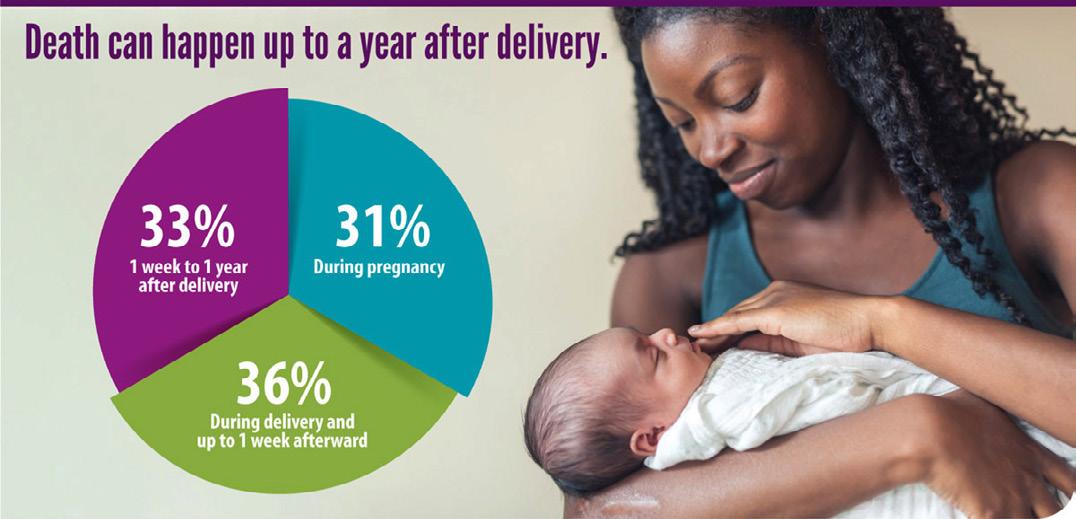
Additionally, Arkansas is developing a Perinatal Quality Collaborative (PQC). Perinatal Quality Collaboratives work to improve the quality of maternal and infant care by identifying health care processes that need improvement and use the best available methods to make changes as quickly as possible.
Quality improvement initiatives have been demonstrated to improve the quality of care provided to pregnant women. These initiatives focus on improving health care provider education and training, as well as standardizing clinical practices to ensure the best outcomes for mothers and babies.
What’s working, and what is NOT working?
A multi-pronged approach that addresses the health system, social, and economic factors that contribute to maternal mortality has been demonstrated to be effective.
Community-based interventions, such as health education and outreach programs, have been shown to improve maternal health outcomes. These interventions can include community mobilization, health education, and outreach activities to promote healthseeking behaviors, and the distribution of essential maternal health commodities.
19 ARKANSAS HOSPITALS | SPRING 2023 WG WG AH AH
Pregnant now or within the last year?
Get medical care right away if you experience any of the following symptoms:
Headache that won’t go away or gets worse over time
Dizziness or fainting

Changes in your vision

Fever of 100.4˚F or higher
Extreme swelling of your hands or face
Thoughts of harming yourself or your baby
Trouble breathing
Chest pain or fast beating heart
Severe nausea and throwing up
Severe belly pain that doesn’t go away
Baby’s movement stopping or slowing during pregnancy
Severe swelling, redness or pain of your leg or arm

Vaginal bleeding or fluid leaking during pregnancy
Heavy vaginal bleeding or discharge after pregnancy
Overwhelming tiredness
These could be signs of very serious complications. If you can’t reach a healthcare provider, go to the emergency room. Be sure to tell them you are pregnant or were pregnant within the last year.
Learn more at www.cdc.gov/HearHer
20 SPRING 2023 | ARKANSAS
HOSPITALS
This list of urgent maternal warning signs was developed by the Council on Patient Safety in Women’s Health Care.
Access to skilled health professionals during prenatal visits, childbirth, and postpartum has been shown to reduce maternal mortality. Providing quality obstetric care can also help reduce maternal mortality. This includes ensuring timely access to emergency obstetric care and appropriate management of pregnancy complications.
Education and empowerment of women have been shown to have a positive impact on maternal health outcomes. Women who are educated and empowered are more likely to seek health care services, practice healthy behaviors, and make informed decisions about their health and the health of their children.
What doesn’t work? Complacency.
Are there other countries in the world that offer best practices in the challenges we face?
The United States has a higher maternal mortality rate compared to other developed countries for several reasons. In the United States, access to health care is not universal, and many women do not have access to adequate prenatal care. Obesity and other chronic health conditions such as hypertension and diabetes are more common in the United States than in other developed countries. These conditions increase the risk of complications during pregnancy and childbirth, leading to higher rates of maternal morbidity and mortality.
Overall, improving access to health care, reducing inequality, promoting evidencebased care, and addressing chronic health conditions can help to reduce the maternal mortality rate.
What should non-medical people be doing to help meet the maternal mortality challenge in Arkansas?
Don’t underestimate your individual efforts. Improve your knowledge on this subject and become an advocate for women’s health. Use your networks to raise awareness and support efforts to improve the health of our communities.
How can communication by the non-childbearing community help? What, specifically, can we do to support efforts to reduce maternal mortality?
We are all products of the childbearing community; therefore, I believe we have a vested interest in this topic. One way to help would be through direct support of the pregnant or postpartum woman. Recognize that your pregnant friend or family member is going through many changes, and though some changes are normal, others could be warning signs for complications or more serious problems. Listen to her concerns, learn the urgent maternal warning signs (see illustration), and support her through follow-up care.
21 ARKANSAS HOSPITALS | SPRING 2023
WG WG AH AH WG AH
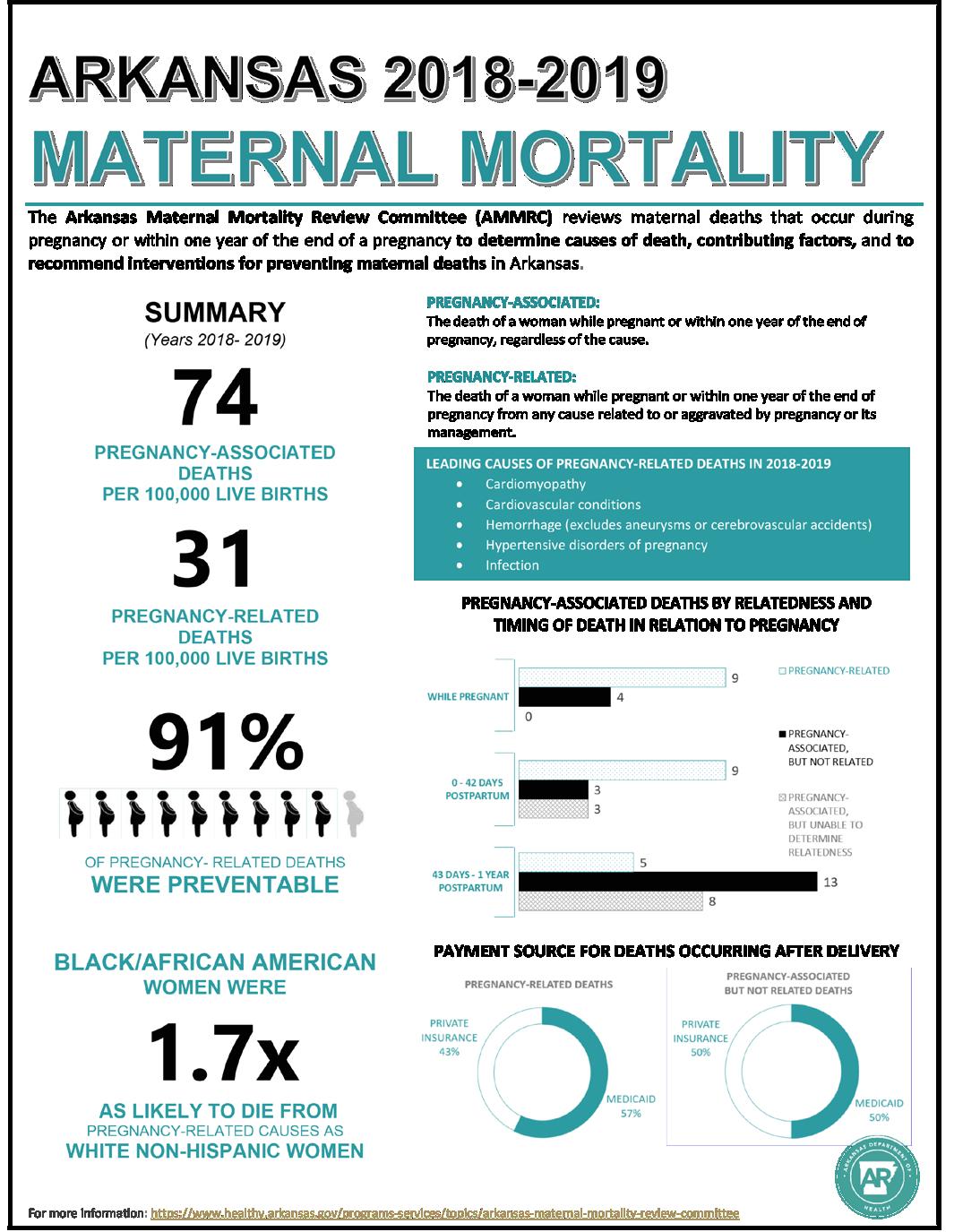
22 SPRING 2023 | ARKANSAS HOSPITALS
Another less direct but essential approach to decreasing maternal mortality is raising public awareness. Become familiar with the current state of maternal health in Arkansas and the efforts to improve outcomes and share the information widely. The annual report from the Arkansas MMRC is available. Visit the website, read the report, share the information. (https://www.healthy.arkansas.gov/ programs-services/topics/arkansas-maternal-mortalityreview-committee)
If you could give a basic 1-2-3 list of strategies to combat maternal mortality in Arkansas, what would those strategies be?
Improve access to quality health care: Providing access to comprehensive prenatal care and maternal health services can help identify and address potential complications during pregnancy, childbirth, and the postpartum period.
Address racial and ethnic disparities with culturally competent care and address inequalities that impact health outcomes.
Address substance use and mental health: Substance use and untreated mental health conditions increase the risk of maternal mortality and morbidity. Effective screening and treatment options should be available to all women.
Improve care for women with chronic health conditions: Women with chronic health conditions such as obesity, hypertension, and diabetes are at higher risk, and effective management is critical for improving outcomes.
Encourage a patient safety culture: Health care providers should be encouraged to regularly review their practices and identify opportunities for improvement to prevent medical errors and adverse events during childbirth.
Improve data collection and analysis: Accurate data on maternal death is essential for understanding and addressing the causes of maternal mortality and morbidity. This includes socio-economic status, racial-ethnic background, and medical history of women who die from pregnancy-related causes.

Address social determinants of health: Addressing the root causes of poor health, such as poverty, lack of access to education, and lack of access to safe housing, is essential for reducing maternal mortality and improving overall health outcomes for women.
Implementing these measures will require collaboration between health care providers, policymakers, and community organizations, as well as ongoing investment in research and program development.
Thank you, Dr. Greenfield. We appreciate your time and expertise.
23 ARKANSAS HOSPITALS | SPRING 2023
WG AH AH
Dr. William Greenfield is a current member of the Arkansas Maternal Mortality Review Committee.
Scan this QR Code to read the report.
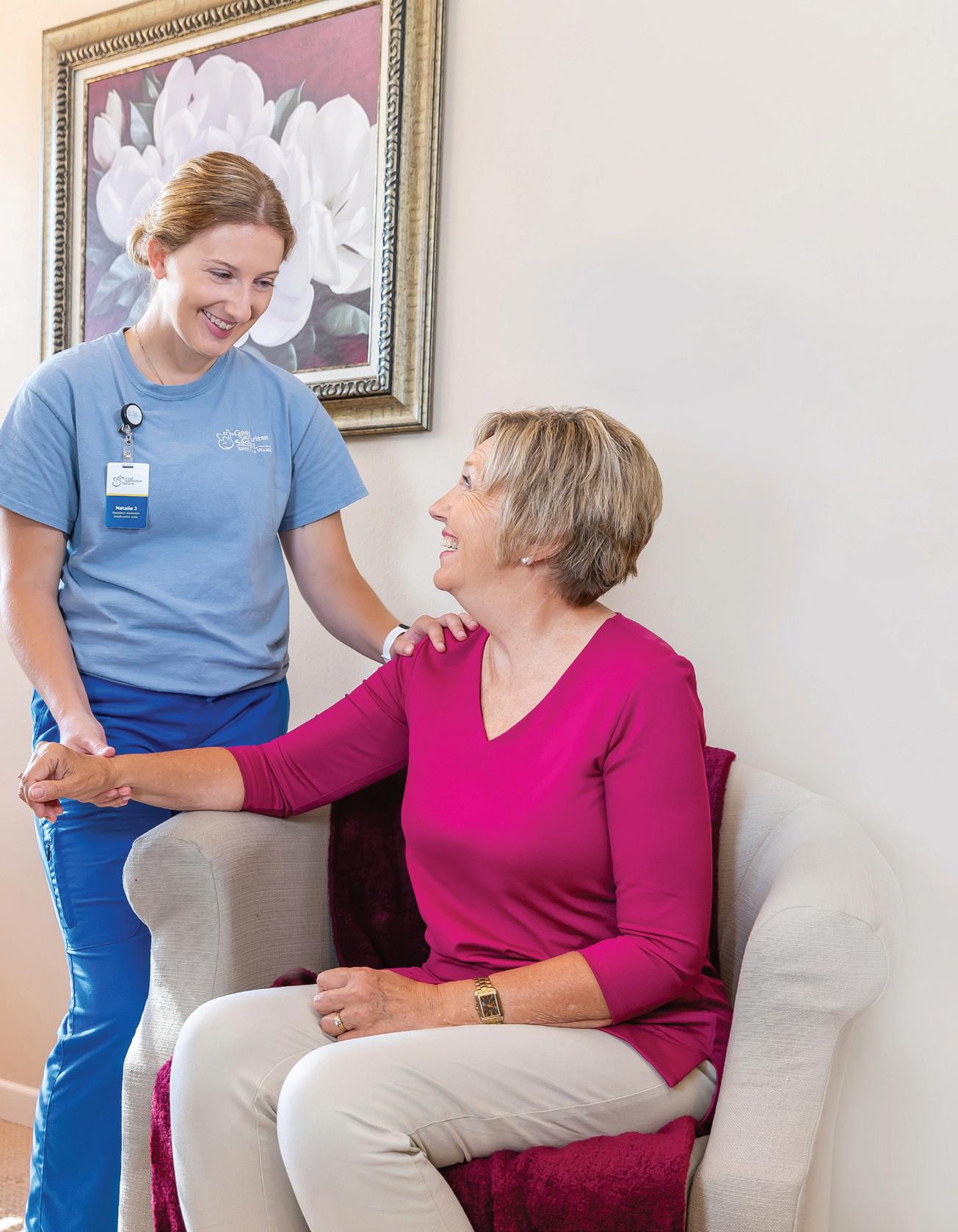

VITAL OUTREACH TO PREGNANT PATIENTS
By Nancy Robertson
Juli McWhorter, RN, BSN, MSN, is CEO of Willow Creek Women’s Hospital in Johnson and Northwest Health Physicians’ Specialty Hospital in Fayetteville, and she has been with the Northwest Health system since her earliest days in health care.
Her leadership style and passion for facilitating excellent patient outcomes/experiences meld, creating an atmosphere where educational tools and resources that both employees and patients need are topmost.
“Our frontline employees have a strong voice in how we deliver care,” she explains. “Patient- and family-centered care are what we’re known for, especially at Willow Creek Women’s Hospital.”
Recognition that many patients lack access to prenatal care because of a variety of issues – unreliable transportation, no prenatal care provider where they live, little knowledge of self-care importance, financial challenges – leads McWhorter to stress communication as key to the patient experience.
“We highlight the importance of prenatal care and provide services that encourage it,” she says. “Our moms connect with our OB Navigator Care System early in their pregnancies. Navigators (nurses with obstetrical training) work one-on-one with our patients, who are encouraged to attend childbirth classes. We teach the phases of pregnancy and make certain our moms are seeing a physician for their care. We encourage breastfeeding and introduce our patients to lactation consultants. We work with community clinics to help them connect patients with our services. It’s all a part of helping our moms stay healthy and deliver healthy babies; we also, by following our patients closely, can identify potential problems early and provide access to needed care in a timely fashion.”
Willow Creek’s educational department also offers postpartum classes that help new moms cope mentally and
physically with the changes in their bodies. “Postpartum depression is a reality, and we help our moms learn to recognize it. We encourage exercise that helps fight depression, and we provide networking opportunities so new mothers can connect with one another.”
She says that partnering with Northwest Health’s secondary service areas provides a backstop that extends the reach of Willow Creek’s obstetrical services. “We provide education to clinics and other care providers in how to stabilize newborns, how to safely provide maternal/fetal and neonatal transport, and even when to call our team for help that can come to them,” she says.
TRENDS IN CHILDBEARING
COVID brought a renewed interest in giving birth at home, where possible. McWhorter recognizes the importance of working with local midwives and doulas, and she regularly attends meetings of these Arkansas caregivers. “We offer Willow Creek as a safe space where midwives and doulas can bring laboring moms and neonates if health challenges arise,” she says. “We partner with these caregivers. They understand that there is no judgment on our part. Our goal, like theirs, is to ensure healthy moms and healthy babies.”
Willow Creek provides low-intervention birthing suites for those moms who want an experience like a home birth but also the safety of nearby hospital services. In these cases, a nurse-midwife (registered nurse with additional training as a midwife who delivers babies and provides prenatal and postpartum care) helps with labor and delivery, then offers postpartum care until the mom returns to her own home.
Another trend is offering bracelets to new moms, which they wear for a year following the birth of their child. Similar to “MedicAlert” bracelets, these bracelets tell
26 SPRING 2023 | ARKANSAS HOSPITALS
LEADER PROFILE
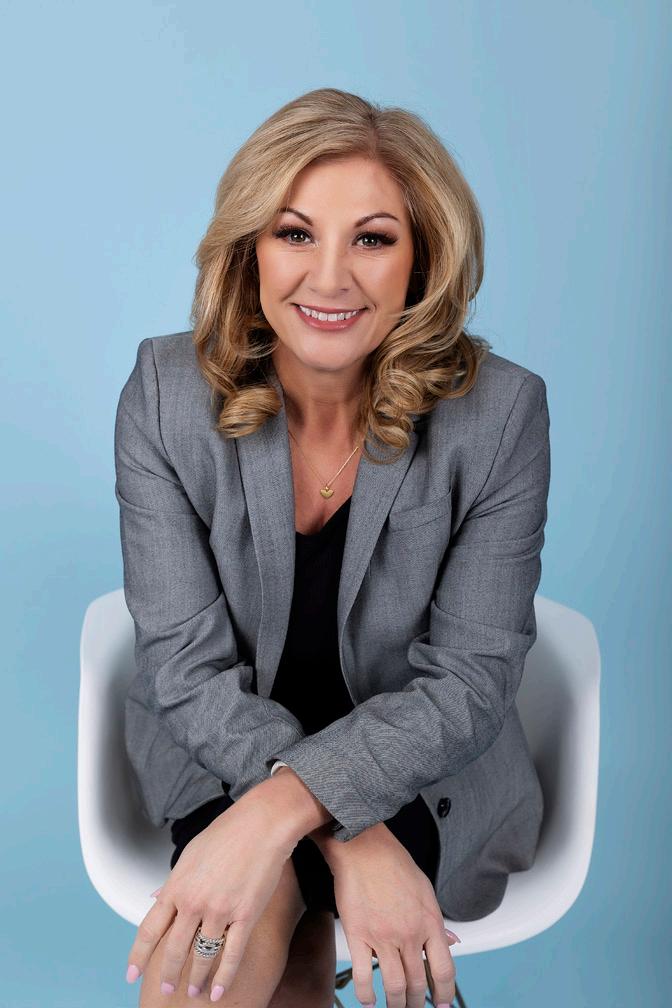
27 ARKANSAS HOSPITALS | SPRING 2023
...[Postpartum alert] bracelets are a new way we're using communication tools to reduce maternal mortality.
potential caregivers that the patient is within a year of giving birth. Why is this important? “We find that too often, conditions that are the result of pregnancy and childbirth can be misdiagnosed or misunderstood by caregivers,” McWhorter says. “In a case where a postpartum

patient is not conscious or able to tell the caregiver about the birth, a hemorrhage, high blood pressure, or an infection might not be connected to the birth without the bracelet’s information. These bracelets are a new way we’re using communication tools to reduce maternal mortality.”
TRUSTED
COUNSEL

EMBRACING DIVERSITY
Willow Creek is in a multi-cultural part of Arkansas, and McWhorter is diligent in providing employee training that recognizes cultural norms and differences that must be respected and understood.
“Patient-centered care is very important to us,” she stresses. “We are constantly asking ourselves how we can provide a better experience for both patients and their families, how we can identify what they are looking for in their care. We look for ways to extend our outreach. We create multi-lingual marketing materials that reflect all of our local cultures: Marshallese, Latino, Black, White, and others. We look beyond the four walls of our hospitals for understanding of our patients’ needs and for best practices. And we pride ourselves that inclusivity is at the heart of all we do.”
POST-PANDEMIC CHALLENGES
As the world enters its postpandemic phase, keeping a skilled workforce intact is one of the biggest challenges facing McWhorter and every other health care CEO.

“We are introducing our PATHWAYS program to help with both recruitment and retention,” she says. “This program offers a $20,000 payback after health care workers earn their degrees, and it offers on-the-jobtraining through work opportunities while still attending school. We also are partnering with organizations to help nurses get training for specialties immediately after graduation with their RN degrees. This speeds up the process of creating more specialty nurses, and our five-hospital system at Northwest Health gives the opportunity to train right here in Northwest Arkansas.

28 SPRING 2023 | ARKANSAS HOSPITALS
THE POWER OF EXPERIENCE
425 W. Capitol Ave., Ste. 1800 | Little Rock, AR 72201 (501) 688-8800 | MitchellWilliamsLaw.com (501) 688 - 8800 MitchellWilliamsLaw.com 425 West Capitol Avenue, Suite 1800 Little Rock, Arkansas 72201 LITTLE
Mitchell, Williams, Selig, Gates & Woodyard, P.L.L.C | Jeffrey H. Thomas, Managing Director
ROCK | ROGERS | JONESBORO | AUSTIN
BEN JACKSON MEGAN HARGRAVES NATE READ
Employee recognition remains a priority for McWhorter, as well, and helps with workforce retention. “COVID has brought stress and burnout to an all-time high,” she says of the health care workforce. “It is a challenge everywhere in the U.S. and in many countries around the world. Recognizing our employees for a job well done and celebrating not only milestones, but also special times of the year, lets our employees know how much we value them.”
She says that recognition of stress is also vital. “COVID put attention on the stress under which health care professionals work,” she says. “Because of this, we now offer more mental health programming than ever, believing that helping our employees heal and stay mentally healthy is the basis of wellness and self-care. We now offer a gym for employees, relaxation rooms, more reward and recognition programs, the availability of social workers for added help, and a strong emphasis on creating and maintaining a positive atmosphere in which to work. We want our workforce to understand that employees are both seen and heard.”
HOME-GROWN LEADERSHIP
Juli McWhorter has lived in Northwest Arkansas since she was in the third grade. Her entire health care career grew, was nurtured, and blossomed in the Northwest Health system. Her leadership style is based on communication excellence and providing the best experience possible for both patients and coworkers. She is one of the region’s best examples of home-grown leadership, and she is dedicated to helping others, especially other women, achieve and realize their goals.
We Asked...
What’s on your music playlist?

Morgan Wallen, Taylor Swift, Miley Cryus, Miranda Lambert



What is the best advice you were ever given?
Hire people who excel in different areas than you do.
Who is someone you greatly admire, and why?
Diana, the Princess of Wales. I admire her unconventional approach to charity work, and her advocacy for AIDS patients and those affected by cancer and mental illness. Her activism and glamor made her an international icon.
What would you be doing if you weren’t in health care?
Working in the fashion industry.
What is something people don’t know about you?
I played softball, basketball, and ran cross country in high school.
What do you like to do in your down time?
Spend time with my friends and family listening to live music and attending Razorback sport events.
What’s on your desk right now?
Water bottle, Pink Wig (for Susan G. Komen fundraising)
What is the most valuable lesson COVID has taught you?
Cherish family and friends, be flexible, take time to smell the roses.
29 ARKANSAS HOSPITALS | SPRING 2023
What does it mean to be taken care of?
At Arkansas Blue Cross and Blue Shield, it means providing peace of mind. We’ve been taking care of Arkansans for over 70 years, providing affordable, reliable health insurance … to keep Arkansans healthy and to help them heal. We’re investing in communities to keep this diverse and wonderful state strong. We’re committed to a whole person approach to health, including physical and behavioral well-being. And we recognize that total health is influenced by many factors, including medical history, genetics, lifestyle, environment, nutrition, safety and physical activity. We also realize that it will take all healthcare providers working together to ensure future generations of Arkansans can live their best life their whole life long. Let’s take good care, Arkansas.

A CAREGIVER AT HEART
No matter what our age, life’s scariest moments can set our future course instantly.
At the age of 11, Juli McWhorter chose her career path when her 34-year-old dad underwent emergency heart surgery. “While growing up, I never changed my goal of becoming a heart nurse,” she says. “I began working toward a career in nursing as early as I could, taking prerequisites while still in high school and working part-time at a nursing home and the hospital. And though my focus has changed somewhat today, the many years I spent working with heart patients made a huge impact on my life.”
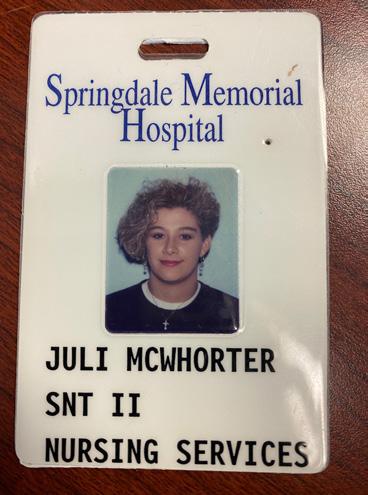
Today, she serves as CEO of Willow Creek Women’s Hospital and Northwest Health Physicians’ Specialty Hospital. Both are affiliated with the Northwest Health system, where she earned her nursing degree nearly 30 years ago.
“I was in the first graduating class of nursing students trained at [then] Springdale Memorial Hospital,” she explains. “The Baptist Medical System School of Nursing, under a new program that made Baptist’s nursing training available in northwest Arkansas, made it possible to attend nursing school near my hometown. As students, we worked as patient care assistants while receiving our education, and then promised two years of service beyond attaining our degrees.” This arrangement paid for the students’ training and assured a locally dedicated group of nurses with each graduation – which was of extreme importance during a nursing shortage that continues today.
McWhorter’s first job out of nursing school was in the surgical ICU, where she was named Charge Nurse at the hospital where she trained. Subsequent years took her into her long-planned career as a heart nurse: She worked, always within the Northwest Health system, as a cardiac step-down nurse, in cardiac rehab, and in patient education. “Teaching people how to prevent heart disease has been a major part of my career,” she says. She has since added BSN and MSN degrees from Western Governors University to her original RN degree. All of that was born from her clarity as a pre-teen, when she knew that nursing was her destiny.
Her work in heart care led to positions in quality management, including Chief Quality Officer for the Northwest Health system at a time when hospital quality was receiving renewed attention.
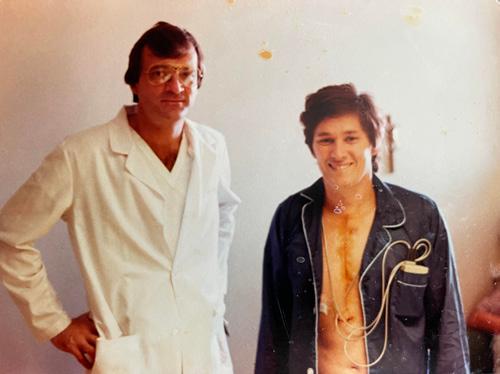
This specialty took her to Willow Creek Women’s Hospital in Johnson, where she became assistant CNO, and, later, CNO, COO, and CEO. “And here I am, nine years later,” she remarks. “My career is remarkably rewarding.”
Under her leadership, Willow Creek has earned several first-in-the-nation and first-in-the-state accolades, including the nation’s first Center of Excellence for Vaginal Birth After Cesarean. Firsts in Arkansas include the Baby-Friendly designation from the World Health Organization and UNICEF, and The Joint Commission’s Perinatal Care Certification.
McWhorter is an advocate for women, mothers, and babies in community work, as well. She is active in the March of Dimes, which works to improve the health of mothers and babies, and she is working to achieve her goal of being Arkansas’s top fundraiser for the Susan G. Komen foundation for the third year in a row. Other passions include Dress for Success, designed to empower women to achieve economic independence by providing a network of support, professional attire, and the development tools to help women thrive, and the Jackson L. Graves Foundation, which provides family-centered care in the NICU environment and promotes quality of life for neonatal and pediatric patients and families facing critical care situations.
31 ARKANSAS HOSPITALS | SPRING 2023
Juli's Dad After Heart Surgery
Juli's First Name Badge
LEGISLATIVE UPDATE
By Jodiane Tritt, Executive Vice President, Arkansas Hospital Association
Twenty representatives of Arkansas hospitals, including local hospital leaders and AHA staff members, attended each of the first two State Advocacy Days, January 25 and February 21. On each day, we had rousing discussions with both the Senate and House Chairs of the Public Health, Welfare, and Labor Committees – Senator Missy Irvin and Representative Lee Johnson. Their energy and enthusiasm are infectious! They are determined to do their very best for the people of Arkansas, and their attention to matters regarding health care was reinforced by discussions with hospital leaders from around the state. They heard clearly that reimbursement enhancements and health care workforce issues are top priorities for our hospitals.
RURAL EMERGENCY HOSPITAL LICENSURE
We are pleased to report that HB 1127, enacting Rural Emergency Hospital Licensure, is now law (Act 59). Representative Lee Johnson gives a concise description of the new law: “It provides a pathway for rural hospitals in Arkansas to take advantage of a new designation that was created by CMS at the federal level. This new designation

32 SPRING 2023 | ARKANSAS HOSPITALS
[allows] qualifying rural hospitals to get reimbursed at a higher rate for outpatient services and procedures.”
At the federal level, Rural Emergency Hospital licenses were created to potentially help lower the number of hospital closures occurring in rural areas. The new designation, soon to be available to hospitals with passage of Act 59, enables the licensure to occur at the state level in Arkansas.
Under Arkansas’s law, not only will Rural Emergency Hospitals receive increased Medicare reimbursements for outpatient services and a monthly stipend to offset expenses, they’ll also be paid by commercial payors and Medicaid as if they are Critical Access Hospitals.
The Arkansas Department of Health is now completing rules and creating application documents for hospitals wishing to convert to this designation.
WHAT WE’RE ADVOCATING …
The AHA advocates for access to care; accountability and financial viability; quality and patient safety; and workforce issues.
At press time, these are some of the major health care bills we’re following and their progress:
• We are closely monitoring SB 278, which would terminate the ARHOME/Medicaid Expansion program. The AHA will oppose that bill, and we are looking for ways to maximize available dollars for the Arkansas Medicaid Program.
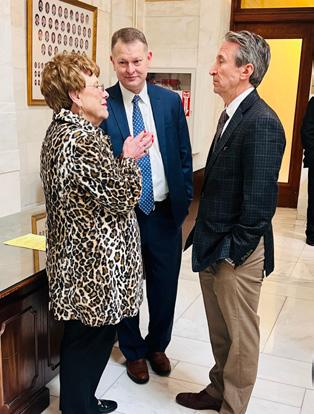
• HB 1271/SB 143 deals with legislation dealing with obstacles occurring due to insurers’ requirement of prior authorization. A wide variety of provider associations is supporting that bill, including the AHA. It is known as the Prior Authorization “Gold Card” Bill, named after similar legislation approved in the state of Texas.
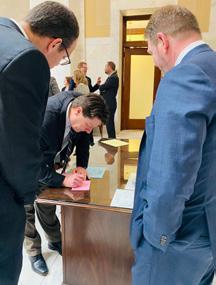


• SB 265 will allow a hospital pharmacy to dispense up to a 31-day supply of medication to emergency room patients or patients being discharged from the hospital. Currently, hospitals can dispense only a two-day supply. While we have some concerns about costs and practicalities of implementing this bill – especially because most Arkansas hospitals are prohibited from attaining a retail pharmacy permit – AHA appreciates the recognition that patients need greater access to their prescriptions when leaving the hospital.
We hope you receive my Legislative Digest each week by email. If you’d like to be added to the mailing list, please contact Amber Estrada at aestrada@arkhospitals.org.
After sending written requests for their legislators to step out for a conversation, hospital leaders carried the message of hospitals' challenges directly to members of the Arkansas House and Senate. State Advocacy Days, hosted by the AHA, bring excellent one-on-one contact so legislators learn firsthand of the difficulties hospitals face post-pandemic and in the midst of rising costs and supply chain issues. We were glad that Senator Missy Irvin (R)-Mountain View, and Representative Lee Johnson (R)Greenwood, chairpersons of the Senate and House Public Health, Welfare, and Labor Committees (respectively) gave hospital leaders an overview of the 2023 Session prior to these individual conversations.
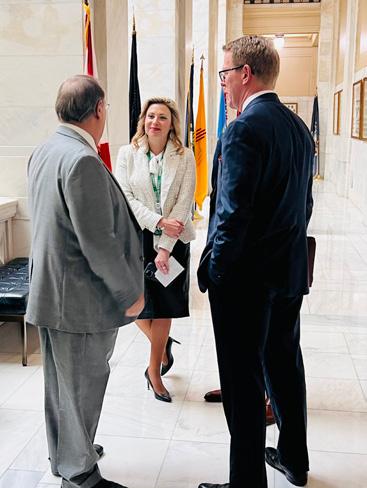
33 ARKANSAS HOSPITALS | SPRING 2023
DIVERSITY, EQUITY, AND INCLUSION:
How Can We Best Serve Our Patients?
NEW DE&I RESOURCE FOR CAREGIVERS
The National Institutes of Health, through its National Institute on Minority Health and Health Disparities, is launching HD Pulse , which provides a plethora of Minority Health and Health Disparities Resources.
AHRQ ANNOUNCES FUNDING FOR ACCELERATING HEALTH EQUITY, SUBSTANCE USE DISORDERS

HD Pulse consists of two easy-to-use portals:
• Data Portal – facilitates identifying, tracking, and studying issues related to minority health and health disparities.

• Interventions Portal (coming soon) – will offer a repository of searchable, evidence-based interventions that have been shown to improve minority health and reduce health disparities.
Who can benefit from using HD Pulse ?
• Health care providers (clinicians, nurses, behavioral health providers).
• Community health workers and advocates (health departments, program implementers).
• Public health practitioners (program implementers).
• Policymakers at the county, state, or federal level.
• Educators and trainees interested in public health, minority health, and health disparities.
• Researchers in academic institutions, research organizations, or federal organizations.

• Public, private, and non-profit organizations (research funding). Visit NIMHD here: nimhd.nih.gov/ resources/hd-pulse.html
Nonprofit hospitals and health systems and other eligible entities can apply until April 14 for up to $2.5 million from the Agency for Healthcare Research and Quality to support evidence-based interventions to prevent, diagnose and treat substance use disorders in primary care; and until April 21 for up to $2.5 million to support evidence-based interventions to accelerate health equity in health care delivery systems, among other funding opportunities. For details, see the agency’s request for applications.

34 SPRING 2023 | ARKANSAS HOSPITALS DE&I
Scan this QR Code to visit NIMHD.
Scan this QR Code to request applications.
LGBTQ+ PATIENTS AND SOGI DATA
A new report on Patient Safety Concerns and the LGBTQ+ Population notes the many challenges LGBTQ+ people experience when seeking and obtaining needed health care. One area that is proving helpful in reducing health care disparities in this population is the proper collection of Sexual Orientation and Gender Identity (SOGI) information.
Authors Connor Wesley (RN, BSN), Cindy Manaoat Van (MHSA), and Sarah E. Mossburg (RN, PhD) say that collecting SOGI information in electronic health records (EHRs) “is one recommendation that may improve the quality of care provided and shed light on the prevalence of safety problems among LGBTQ+ people.”
They note that the Department of Health and Human Services makes collection of SOGI data a priority and that the CDC notes a correlation between collecting accurate SOGI data and high-quality health care for patients.
“By asking questions about sexual orientation, gender identity, sex originally listed on birth certificate, names, and pronouns, health care workers can be better informed about their patients and provide more patient-centered, compassionate care to LGBTQ+ patients,” they say. They also note that accrediting organizations, like The Joint Commission, “also emphasize the
PODCAST: Advancing Women’s Health through an Equity Lens
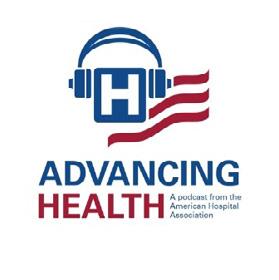
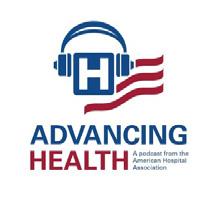
importance of collecting these data to support aspects of the health care system outside of direct patient care, including evaluating the effectiveness of programs, quality improvement efforts, and community outreach initiatives.”
The authors stress that “by collecting patient SOGI information at the initial point of contact, such as registration or admission, health systems can leverage these data to deliver the appropriate types of care needed.”
Unfortunately, studies show that SOGI data are often still missing from EHRs. Educating and training on the importance of collecting SOGI data is encouraged and should improve data collection, patient safety, and delivery of proper care.


More of the report is available here: psnet. ahrq.gov/perspective/ patient-safety-concernsand-lgbtq-population.
For Women’s History Month, the American Hospital Association’s Institute for Diversity and Health Equity turns the spotlight to a female-led venture capital firm that is out to change women’s lives for the better. SteelSky Ventures invests in innovative companies that work to improve health care access, quality, and affordability for women.
35 ARKANSAS HOSPITALS | SPRING 2023
Scan this QR Code to read more of the report.
Scan this QR Code to listen now.
SUPPLIER DIVERSITY PROGRAM: Good for Business, Good for the Community
Vizient®’s Supplier Diversity Program connects members to diverse suppliers, data and expertise to help meet your organization’s purchasing, healthy community, and economic development goals.

WHY SUPPLIER DIVERSITY?
Supporting the growth and development of diverse and small businesses promotes economic sustainability in all of our communities through access to jobs, housing, health care and more. And members are seeking opportunities to shift supply and service spend to local suppliers in order to help promote job growth and economic improvement, which will ultimately help improve the health of the patient population.
Vizient works with organizations that support minority-, women-, LGBT-, disability- and veteran-owned enterprises. Through them, certified diverse suppliers can access learning, mentoring, potential capital opportunities and other resources to help attain sustainable growth, resulting in healthier and stronger communities.
36 SPRING 2023 | ARKANSAS HOSPITALS
AHA SERVICES PRESENTS
MEETING YOUR SUPPLIER DIVERSITY GOALS
At Vizient, our Supplier Diversity team works closely with staff, members, suppliers, and certification and advocacy organizations to help support members’ efforts to reach their diversity goals. This focus results in not only long-term viability for diverse suppliers but also local economic development near members’ facilities – which leads to increased overall community health.
Core program offerings include:
• Access to product and service contracts with national, regional, community, and custom diverse and community suppliers.
• Tier 1 and Tier 2 purchase reporting.
• Supplier Connection online platform.
• Quarterly engagement with peers via our Expert Panel.
• Member-led advisory council.
Members may also opt to evaluate, establish, and expand their own diversity initiatives by participating in additional offerings like enhanced data reporting, advisory services, and other resources.
PORTFOLIO BREADTH, CHOICE OF SUPPLIERS
Vizient Catalog contains more than 200 national agreements with certified diverse suppliers and small businesses across all categories, including many that were awarded through our competitive contracting process in compliance with the American Bar Association’s Model Procurement Code. Our approach to contracting results in more supplier options to help members meet organizational purchasing objectives.
In addition to national contracts, members can choose to source products and services from certified diverse suppliers who are local to their geographic area through our Community Contracting initiative.
37 ARKANSAS HOSPITALS | SPRING 2023
Our mission: to support members’ inclusion and use of diverse firms, resulting in economic development in all our communities.
COMMUNITY CONTRACTING

For many members, supporting local small and diverse businesses is a high priority in the endeavor to improve overall community health. Through our exclusive community contracting initiative, Vizient negotiates contracts with vetted and certified suppliers in selected markets, with a special focus on community-based small and diverse suppliers. All members can access these contracts through Vizient Catalog.
SUPPLIER CONNECTION
The Supplier Connection online platform offers access to tools and resources to help you find diverse suppliers based on product or service coverage, geography and other attributes, as well as Tier 1 and Tier 2 spend data.
In addition, the site will help you track efforts to utilize diverse suppliers and meet your organization’s diverse spend goals. These benefits are available to all Vizient members.
Members may choose to access additional functionality through optional subscription-based modules that enable customization and advanced reporting. Users can measure economic impact, monitor compliance, receive projectbased reporting, conduct RFIs for sourcing opportunities, and more.
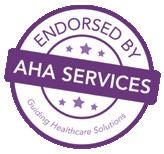
Accessible through vizientinc.com, the easy-to-use data interface means you can easily monitor and manage performance against your organization’s diversity objectives, validate vendor selection, support local businesses, or meet a specific product sourcing need.
SUPPLIER DIVERSITY ADVISORY COUNCIL (SDAC)
Composed of supplier diversity and supply chain professionals from member hospitals, the SDAC advises and guides our supplier diversity strategy with a focus on ensuring that Vizient diversity goals are strongly aligned with those of our members.


38 SPRING 2023 | ARKANSAS HOSPITALS
Featuring Keynote Speaker Boomer Esiason on Overcoming Life’s Challenges 2023 AHA Annual Meeting November 1-2 Little Rock Marriott Your organizational wellbeing is our
There’s nothing more important to the wellbeing of your business than the wellbeing of your people. That’s why for more than 90 years we’ve been here for businesses, communities and people around the globe. Customizing insurance programs and benefits, and HR solutions tailored to their needs. Consulting with companies through every challenge to drive better outcomes. Helping you build the confidence to handle whatever comes next. AJG.com
© 2023 Arthur J. Gallagher & Co. | GBS43936 CONNECT WITH US Gallagher 6325 Ranch Drive Little Rock, AR 72223 501.485.3075 43936 GBS 2023 MWR AHA_AD_FINAL.indd 1 1/31/2023 1:33:50 AM
SAVE THE DATE!
priority.
| The Gallagher Way. Since 1927.
The SDAC provides input on the policies, practices and procedures that support the three pillars of the Vizient Supplier Diversity Program: maximizing opportunities, mentoring and enrichment, and fostering collaboration.
SUPPLIER DIVERSITY CONSULTING
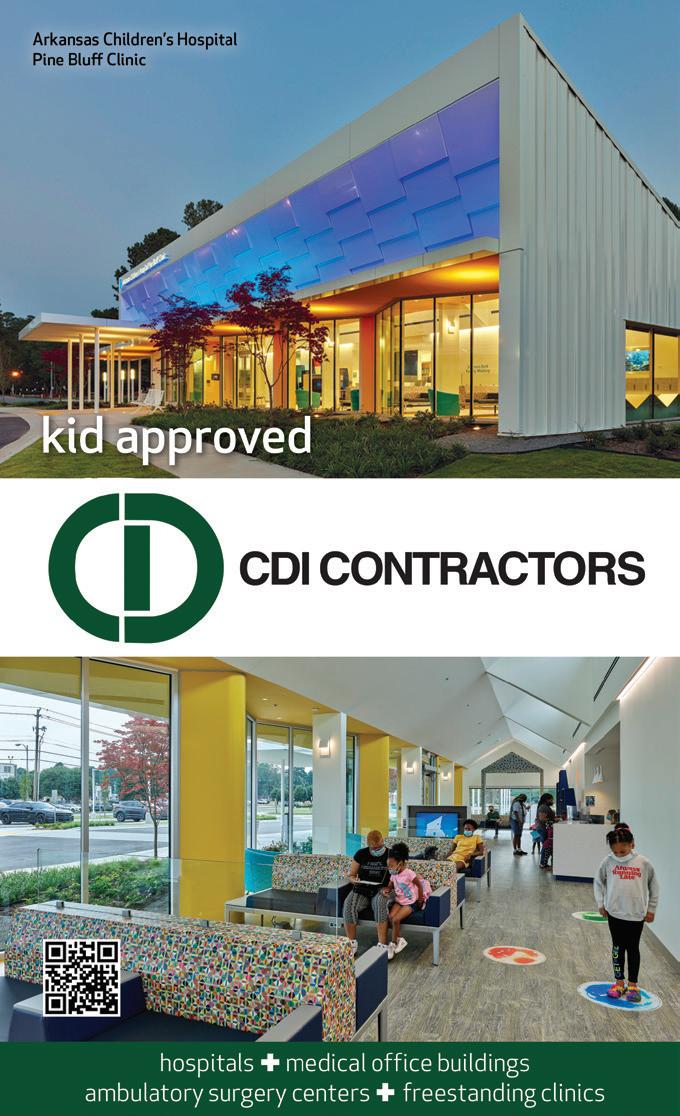
In response to the many members who have sought our support in developing, establishing, or advancing their organization’s supplier diversity program, Vizient offers a supplier diversity consulting engagement solution. Our Advisory Services team will work with you to evaluate Tier 1 and Tier 2 spend; identify certified, capable diverse suppliers; determine appropriate purchasing goals; establish best practices; and leverage these factors to amplify your organization’s economic impact in your community.
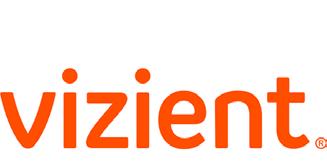
CUSTOMIZED SCOPE OF WORK
A dedicated Vizient resource will work with your supply chain team to develop and implement a customized strategic plan for contracting and purchasing with diverse suppliers. Your multiyear plan will focus on outreach, supplier development, metrics, capacity-building, and communication – in addition to national and community-level contracts – to guide you to increased community and diverse supplier spend.
EXPERTISE AND RESOURCES
Our dedicated program team continually engages with certification, networking and advocacy organizations that support diverse and small businesses to champion inclusion in members’ supply chains and accelerate economic growth in our local communities. They lead initiatives to help members share expert insights, feedback, and suggestions, and they can provide guidance to members seeking
to develop or enhance their own diversity procurement programs. For more information about the Vizient Supplier Diversity Program, visit vizientinc.com/supplierdiversity or contact Jeneen Ablan, Strategic Affiliate Manager, at 507.313.1185 or jeneen.ablan@vizientinc.com.
39 ARKANSAS HOSPITALS | SPRING 2023
WHY DIVERSITY, EQUITY, AND INCLUSION(DE&I) Are a Leadership Imperative
 by Kay Kendall
by Kay Kendall
DE&I–A NEW COLUMN IN HEALTHCARE EXECUTIVE
In the January/February 2023 edition of Healthcare Executive, published by the American College of Healthcare Executives, a new column focused specifically on Diversity, Equity, and Inclusion (DE&I) has launched. In this inaugural column, ACHE Chair, Anthony “Tony” Armada, emphasizes the importance of addressing this essential issue to ensure that organizations understand the impact on patients, staff, and the community. He also emphasizes the importance of top leadership demonstrating their personal commitment to ensure that DE&I becomes an organizational foundation.
AN INCREASED EMPHASIS IN THE NEWEST BALDRIGE EXCELLENCE FRAMEWORK
In a recent interview with Bob Fangmeyer, Director, Baldrige Performance Excellence Program, we discussed the long commitment to encouraging, valuing, and
leveraging diversity in the workforce that has been evident in the Baldrige Excellence Framework since 2000 (and, less explicitly, back to 1995). This commitment became more explicit in the 2021-2022 Baldrige Excellence Framework and was heightened in the most recent revision for 20232024.
As Bob explained, the criteria and the Baldrige Award were initially created in the late 1980s to spur competitiveness in American industries, particularly manufacturing and service. However, Bob continued, as time when on, “Quality alone became insufficient to create and sustain a competitive advantage and ensure long term success, across all sectors of the economy.”
With the advent of the COVID pandemic and subsequent “quiet quit” and resignations of huge numbers of employees, pay and benefits are no longer sufficient to retain a highly engaged and highly productive workforce. Employees want to feel personally appreciated, that their work is valued, and included in every sense of the word in the workplace.
40 SPRING 2023 | ARKANSAS HOSPITALS
COACH'S PLAYBOOK
DIVERSE WORKFORCES OUTPERFORM

Bob acknowledges, “Studies have long shown that a diverse workforce, in the broadest sense of the word, that brings different knowledge, skills, experience, perspectives, and backgrounds improves creativity, agility, and innovation; such organizations or work units are more likely to outperform non-diverse teams and are more likely to capture new markets, improve profitability, and shorten time to market.”
RESULTS WHEN LEADERSHIP COMMITS
DE&I has expanded to show up in more parts of the Baldrige Excellence Framework in the latest revision, making its first appearance in Item 1.1, Senior Leadership, because that’s where the intentional commitment starts. In Tom Peters’ recent book, Excellence Now: Extreme Humanism, he advises leaders regarding inclusivity in his first chapter: “Analyze where you are as an organization. Set goals for where you want to be. Put in place incentives to achieve those goals. Measure them ruthlessly and relentlessly.”
Tony Armada has the same advice, “Clear DE[&]I goals and objectives can be set … to truly move the dial.” And to underscore this point, the latest Baldrige Excellence Framework asks specifically for results demonstrating leadership commitment to “cultivating a culture that values diversity and fosters equity and inclusion, innovation, and intelligent risk taking.”
I believe that nowhere is DE&I more of a leadership imperative than in health care. Bob was clear
on this.”There were plenty of voices expressing concern about the social disparities of health pre-pandemic, but unfortunately, they weren’t widely heard. Certainly, though, the pandemic thrust these disparities into the spotlight for all to see,” and DE&I is at the heart of many of these.

JOB QUALITY TOOLKIT: DE&I A DRIVER OF EMPLOYEE ENGAGEMENT
To learn more about what you can do as a leader, check out the “Job Quality Toolkit” produced in partnership by the Department of Commerce and the Baldrige Performance Excellence Program (https://www.commerce. gov/work-us/job-quality-toolkit). One of the nine drivers of employee engagement that is explored in detail is “Diversity, Equity, Inclusion, and Accessibility (DEIA).”
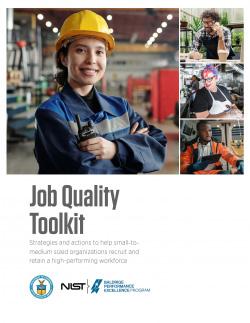
This chapter features assessment practices, recommendations for practical actions, and links to other helpful resources.
How would your own organization rate on DE&I? How do you know?
The team at BaldrigeCoach would be glad to help guide your hospital’s quest for process improvement. As CEO and Principal of BaldrigeCoach, Kay Kendall coaches organizations on their paths to performance excellence using the Malcolm Baldrige National Quality Award Criteria as a framework. Her team, working with health care and other organizations, has mentored 24 National Quality Award recipients. In each edition of Arkansas Hospitals , Kay offers readers quality improvement tips from her coaching playbook. Contact Kay at 972.489.3611 or Kay@Baldrige-Coach.com
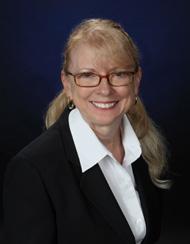
41 ARKANSAS HOSPITALS | SPRING 2023
Scan this QR Code to get the tool kit today.
New York Institute of Technology College of Osteopathic Medicine (NYITCOM) at Arkansas State University is committed to training talented physicians who aspire to become servant leaders that positively impact their communities.
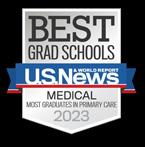
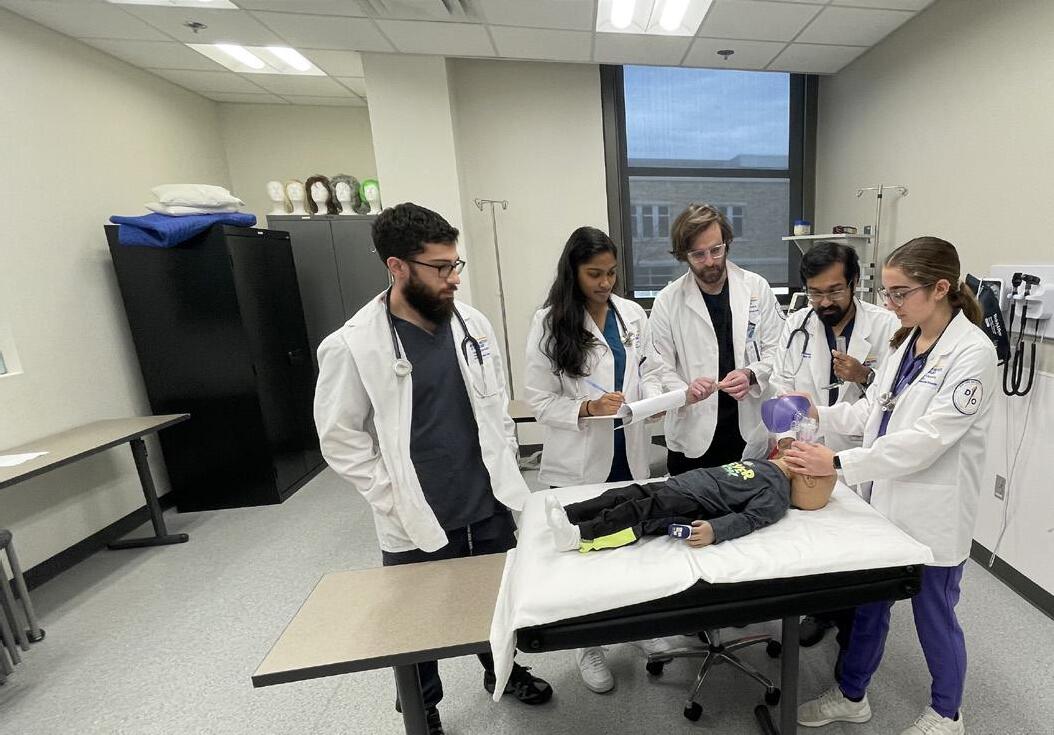
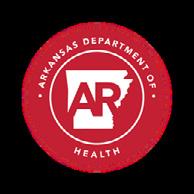
powerful information that can transform the way that a facility plans, delivers, and coordinates healthcare!


42 SPRING 2023 | ARKANSAS HOSPITALS
SHARE EMR Integration Reducing Cost Reduce duplicative & unnecessary testing Avoid unnecessary hospitalizations Improving Population Health Improving chronic care management & outcomes Coordinate patient followup after hospitalization Reducing Provider Burden Decreasing amount of time gathering previous records Streamlining public health and payer reporting Expedite Medicaid Eligibility determination Improving Patient Care Increasing patient safety Assisting with medication reconciliation
Contact Us | 501.410.1999 | SHAREhealth@arkansas.gov | www.sharearkansas.com
@SHAREarkansas @SHAREarkansas @SHARE
Contact
Doctor of Osteopathic Medicine
Master of Science, Biomedical Sciences Leaders in Medical Education nyit.edu/arkansas | 870.680.8816 | ComjbAdmissions@nyit.edu Training Physicians In Arkansas,
The Benefits of
SHARE is the fastest and most secure way to get patient health records from providers outside of your organization. SHARE is currently connected to 112 hospitals and over 2,800 ambulatory sites in Arkansas SHARE gathers your patients' clinical data in real-time from participating healthcare providers to instantly give you a holistic view of your patient's health hist ory, treatment, and progress
That's
us to learn more about the two degree programs offered on our Jonesboro campus:
(D.O.)
For Arkansas
Maternal Life360 HOMEs: PROTECTING ARKANSAS MOTHERS THROUGH HOME VISITING
According to the CDC i , Arkansas had the highest maternal mortality rate in the U.S. from 2018–2020. While data suggest a decrease in recent years, there are still opportunities for further improvement.
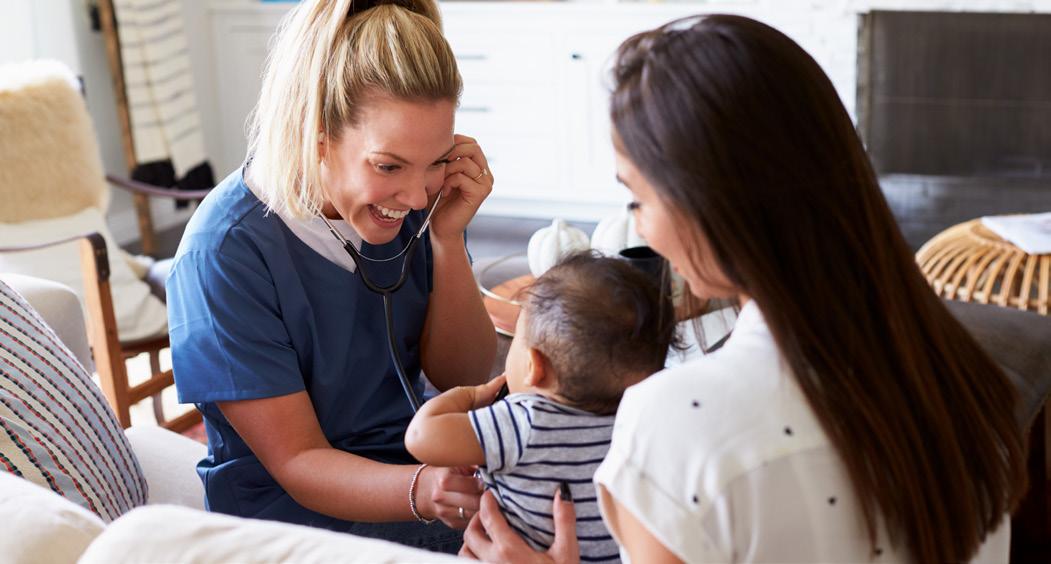
Half of Arkansas’s 75 counties are classified as “maternity care deserts,” ii with another 11 having low access to maternity care.
AFMC’s recent maternal mortality project funded by the Arkansas Department of Human Services (DHS) was based on 2020 CDC data that identified Arkansas as one of the highest-ranking states for preterm birth and low birthweight infants. To help address these gaps, AFMC’s provider outreach team works on behalf of Arkansas Medicaid with obstetric and primary care physicians to ensure Medicaid programs and policies are understood and implemented. This includes a new component of the ARHOME program (Arkansas’s Medicaid expansion program) called Life360 HOMES (also called Life360s).
By Nell Smith
The Life360 programs focus on intensive care coordination and providing intensive supports to targeted Arkansas Medicaid populations to improve their health outcomes. There are three Life360 HOMES programs: Maternal, Rural, and Success. Medical services, including doctor’s visits or home health care, will continue to be provided through the ARHOME health plan or traditional Medicaid.
Maternal Life360s directly address Arkansas’s maternal and infant health outcomes. Through this program, DHS brings hospitals and maternal and child home visiting together to assist pregnant mothers. Hospitals approved to serve as Maternal Life360s can hire their own staff or partner with an existing home-visiting program to offer home-visiting services to women with high-risk pregnancies enrolled in Medicaid. The home-visiting program provides services to these women from pregnancy up to two years after the baby’s birth. ARHOME beneficiaries can continue to receive Life360 services even if they disenroll from Medicaid.
43 ARKANSAS HOSPITALS | SPRING 2023
BENEFICIARY ELIGIBILITY
Women can receive Maternal Life360 home-visiting services if enrolled in ARHOME. DHS is currently seeking approval from CMS to include other Medicaid eligibility categories beyond ARHOME.
Eligible women must have a high-riskiii pregnancy at the time of their enrollment in Life360. A doctor may diagnose a pregnancy as high-risk if a woman has a history with preterm births, experiences an ectopic pregnancy iv , is over 35/under 17, or has health-related social needs the physician believes puts her at high risk.
Women are also only eligible for Maternal Life360 services if they live in the Life360’s approved service area. When a hospital applies to become a Life360 HOME, DHS asks them to define the area they wish to serve. DHS approves this area or modifies it to fit existing needs.
Finally, benefits cannot overlap. Women must not already be receiving home-visiting services prior to enrolling in the program. The Maternal Life360 program is required to supplement the existing home visiting services offered across the state, allowing more women to benefit from these evidence-based services.
HOSPITAL ELIGIBILITY
To be eligible to provide these services, a hospital must be a current Arkansas Medicaid hospital provider and must be a birthing hospital, meaning they offer obstetric services. Maternal Life360 hospitals can be in Arkansas or a bordering state. There are currently 39 eligible hospitals in Arkansas.
The hospital must use an evidence-based home visiting model in its program. Four evidence-based home visiting programs currently exist in Arkansas: Healthy Families America, Nurse-Family Partnership, Parents as Teachers, and Early Head Start. These four programs serve 38 counties and provide services in part of another four. Through this program, DHS hopes to ensure home-visiting services are available to meet the needs in all Arkansas counties.
DHS’s enrollment organization will play a critical role in assisting hospitals with assigning beneficiaries to their Life360 program. DHS’s partners will confirm that all hospitals receive the required beneficiary information, that beneficiaries live in a Life360 service area, and that participating beneficiaries have completed consent and other services documentation. In addition, DHS and its
44 SPRING 2023 | ARKANSAS HOSPITALS
In addition to having some of the highest maternal mortality rates in the nation, Arkansas has also consistently been above the national average in infant mortality rate.
Nine hospitals throughout the state are eligible to become Life360 HOMEs.
Four home-visiting programs currently exist in Arkansas. These programs have a footprint in 38 counties (dark blue) and part of another four (light blue).
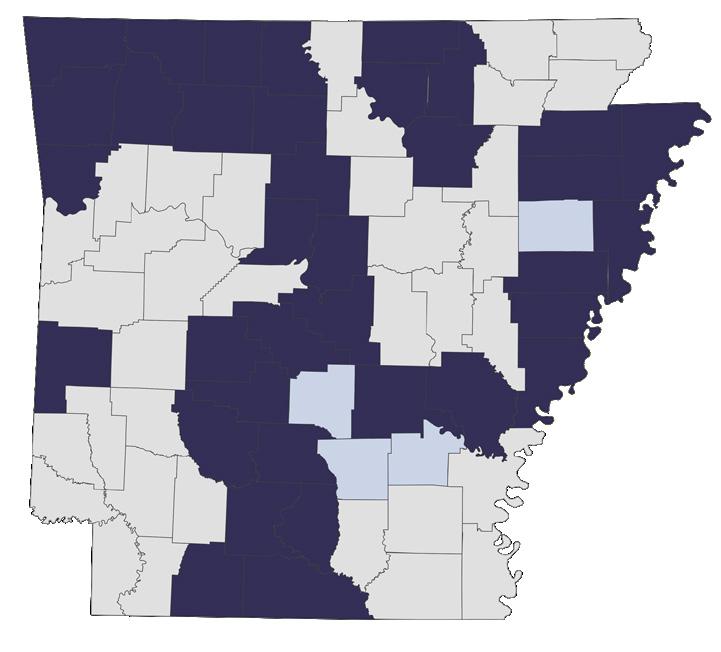
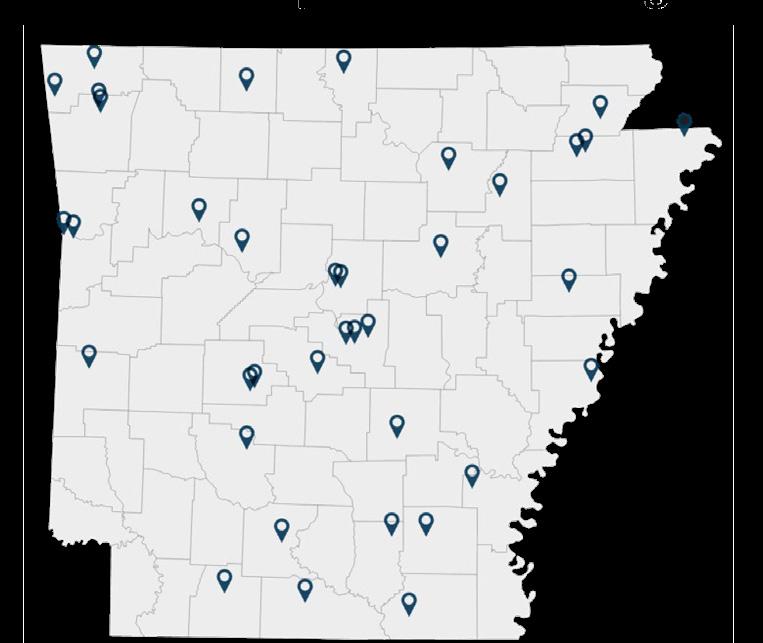
45 ARKANSAS HOSPITALS | SPRING 2023
46 SPRING 2023 | ARKANSAS HOSPITALS
partners will educate primary care providers and specialists on the process of referring their identified beneficiaries to the Life360 hospital for services.
Hospitals interested in participating in the Life360 program can submit a letter of intent to life360@dhs.arkansas.gov. For additional questions, please contact Nancy Watson at 501-371-2541 or nancy.watson@dhs.arkansas.gov

IMPACT AND METRICS FOR SUCCESS
In addition to having some of the highest maternal mortality rates in the nation, Arkansas has also consistently been above the national average in infant mortality rate. While the number of infant deathsv per 1,000 live births in 2019 (6.90) is still above the national average (5.73), this number has decreased since 2016. Several factors affect an infant's risk of dying, including preterm birth, low birthweight, and mothers’ lack of access to maternal care.
Arkansas has consistently ranked worse than the national average in preterm births. In 2020, Arkansas ranked 45th out of the 50 states in preterm births and 44th in low birthweigh.vi, vii In 2021, Arkansas (10.10) was also below the national average (11.02) in the number of prenatal visits per 1,000 mothers.
To measure the impact and outcomes of participants in the Maternal Life360viii program, as well as outcomes in the Medicaid program, DHS plans to monitor hospitals based on several metrics, including (but not limited to) the number of home visits performed, hospital admissions and readmissions, emergent and non-emergent ER visits, prenatal visits, elective C-section rates, live births, pre-term/term births, birthweight, NICU stays, and the provision of postpartum contraceptive care.
While this program is still in its infancy, DHS is excited about the Life360 HOMEs program and the positive impact it will have on many women across our state. Together, DHS and participating hospitals, through the Life360 HOMEs program, have an opportunity to better the lives of pregnant women who are at a key stage in their lives.
Ms. Nell Smith holds a master’s degree in public health and a master’s degree in print journalism. She was a health reporter for seven years, covering the state’s health and medical agencies, including the University of Arkansas for Medical Sciences (UAMS), DHS, and the Health Department. She also worked for the Bureau of Legislative Research (BLR) for 12 years. While at BLR, which serves as the General Assembly’s non-partisan staff, Nell served as a researcher and then as the administrator for the research section. Her role was to research policy topics requested by legislators, including topics involving Medicaid, and present research to legislative committees. In her current role, she oversees ARHOME and several other Medicaid programs.
Endnotes
i Centers for Disease Control and Prevention, National Center for Health Statistics, National Vital Statistics System. “Maternal deaths and mortality rates: Each state, the District of Columbia, United States, 2018–2020,” accessed January 30, 2023, https://www.cdc.gov/nchs/maternal-mortality/mmr-2018-2020-state-data.pdf.
ii March of Dimes. “Nowhere to Go: Maternity Care Deserts Across the U.S. (2022 Report),” Maternity Care Deserts Report, accessed January 30, 2023, https://www.marchofdimes.org/maternity-care-deserts-report.
iii Cleveland Clinic. “High-Risk Pregnancy.” Reviewed 2021. Accessed January 30, 2023, https://my.clevelandclinic.org/health/ diseases/22190-high-risk-pregnancy#:~:text=Gestational%20diabetes.,other%20complications%20with%20previous%20 pregnancies.

iv National Library of Medicine. “Ectopic Pregnancy.” August 2022. Accessed January 30, 2023, https://www.ncbi.nlm.nih. gov/books/NBK539860/.
v Arkansas Department of Health, Arkansas Maternal and Perinatal Outcomes Quality Review Committee, “Legislative Report.” December 2021. Accessed January 30, 2023, https://www.arkleg.state.ar.us/Calendars/Attachment?committee=430&age nda=4896&file=Exhibit+D1+-+Maternal+and+Perinatal+Quality+Review.pdf.
vi Centers for Disease Control and Prevention, National Center for Health Statistics. “Percentage of Births Born Preterm by State,” accessed February 14, 2023, https://www.cdc.gov/nchs/pressroom/sosmap/preterm_births/preterm.htm.
vii Centers for Disease Control and Prevention, National Center for Health Statistics. “Percentage of Babies Born Low Birthweight By State,” accessed February 14, 2023, https://www.cdc.gov/nchs/pressroom/sosmap/lbw_births/lbw.htm.
viii Centers for Disease Control and Prevention, National Center for Health and Statistics, National Vital Statistics System, “Natality, 2016–2021 expanded Results: Data current as of 2021,” accessed February 15, 2023, https://wonder.cdc.gov/ controller/datarequest/D149;jsessionid=1EEF1AAE4F7E1F7EED349F0BA50F?stage=results&action=sort&direction=ME ASURE_DESCEND&measure=D149.M002.
47 ARKANSAS HOSPITALS | SPRING 2023
the CareSource PASSE network Reimagining Health Care HEALTH HOUSING JOBS SUPPORT
Now is the time to join
WHAT IS HEALTH EQUITY?
Equity is the absence of avoidable, unfair, or remediable differences among groups of people, whether those groups are defined socially, economically, demographically or geographically or by other means of stratification.
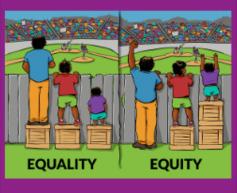
-World Health Organization
The route to achieving equity will not be accomplished through treating everyone equally. It will be achieved by treating everyone justly according to their circumstances.
Health equity means that everyone has a fair and just opportunity to be healthier. This requires removing obstacles to health such as poverty, discrimination, and their consequences, including powerlessness and lack of access to good jobs with fair pay, quality education and housing, safe environments, and health care.
Research shows that problems like poverty, unemployment, low educational attainment, inadequate housing, lack of public transportation, exposure to violence, and neighborhood deterioration (social or physical) shape health and contribute to health inequities.
-National Academy of Sciences
Interaction Institute for Social Change
Artist: Angus Maguire
48 SPRING 2023 |
ARKANSAS HOSPITALS
-Robert Wood Johnson Foundation
-Paula Dressel, Race Matters Institute

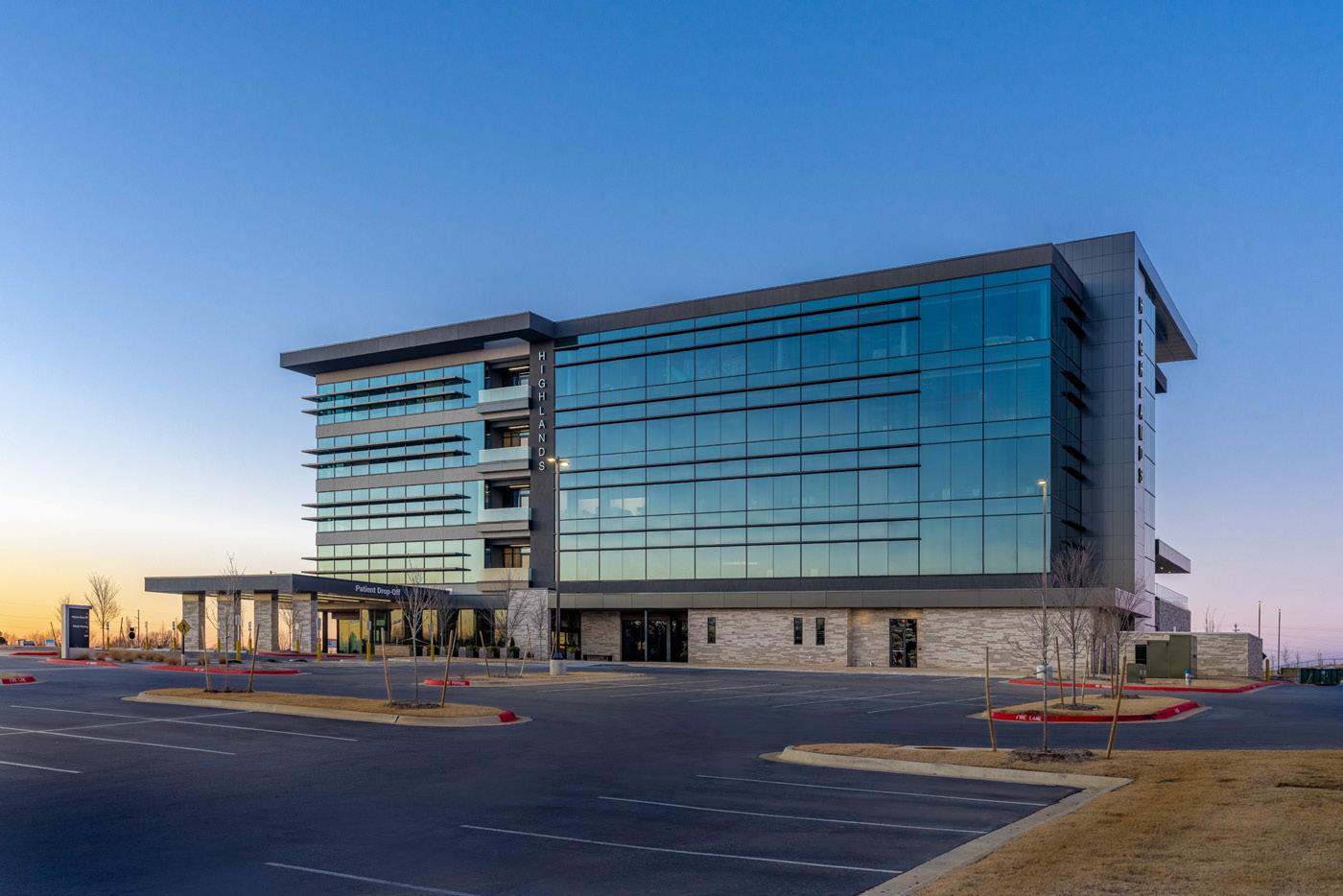
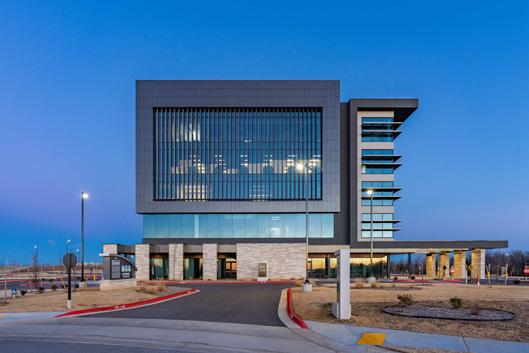
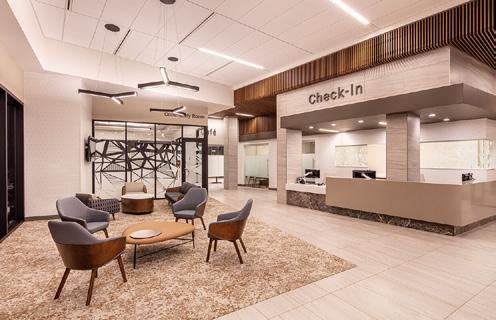


49 ARKANSAS HOSPITALS | SPRING 2023
ONE NAME. ALL YOUR CONSTRUCTION NEEDS.
Nabholz is your integral partner for all your construction and maintenance needs. With 70+ years of experience we understand every aspect of construction, renovation, and maintenance.
Nabholz is ready to work for you immediately. Even better, we tailor our services to fit your needs.
PRECONSTRUCTION & CONSTRUCTION
From interactive preconstruction meetings to extensive renovations and new construction, Nabholz has over 70 years of experience delivering quality commercial construction.
CRANE & EQUIPMENT RENTAL
Nabholz owns an impressive fleet of equipment available for rent, including a large variety of cranes manned by NCCCO-certified operators.
ENVIRONMENTAL HAZARD SERVICES
Nabholz’ environmental team provides testing, remediation, and consulting services for hazardous environmental materials, and are experienced in Phase I & II Environmental Assessments and asbestos and mold abatement.
INFRASTRUCTURE & EXCAVATION
First to hit the job site, this group performs excavation, groundwork, utility work, and paving. Additionally, they complete standalone heavy highway, infrastructure, and roadwork.
ENERGY PERFORMANCE & SOLAR
Entegrity (a Nabholz company) specializes in energy performance contracting, LED light retrofits, and solar panel installation.
CUSTOM FABRICATION & CABINETRY
With on-site fabrication and millwork shops, our skilled craftsmen create unique products, from industrial turntables and mezzanines to custom desks and reception areas.
MACHINERY INSTALLATION, MOVING, & SERVICE

Our industrial team transports, assembles, and maintains clients’ most crucial pieces of machinery. From setting an MRI to transporting and assembling a 20-ton injection mold machine, they can do it all.
MAINTENANCE & REPAIRS
Working as an extension of your maintenance staff, Nabholz offers a comprehensive array of maintenance and handyman services, ranging from emergency repairs to total renovations.
CONTACT US TO LEARN MORE ABOUT HOW WE CAN HELP YOU.
1.877.NABHOLZ | NABHOLZ.COM







































































 by Kay Kendall
by Kay Kendall




















